It’s been almost two months since Garmin announced the FR645 and FR645 Music (aka FR645M), its first wearable with music onboard. Past Garmin watches could control music on your phone, but none could have music loaded on it and play directly to headphones. Of course, such a feature is (or was) hardly unique to Garmin. Countless running watches have had it for a while. From TomTom to Timex, Apple To Fitbit, and many more.
In any event, now music is here. But it’s more than just music – after all, the FR645 comes in two variants, music and non-music. At its core it’s a running watch, with a swath of new features compared to Garmin’s past running-specific watches. Not to mention more unique functionality like contactless payments that Garmin only recently introduced last fall.
With Garmin now actively shipping the Forerunner 645 Music to customers, it’s definitely in-depth review time. I’ve been using the watch since this past December, and it’s been on my wrist virtually 24×7 (except the roughly once a week I’d charge it up). Runs, rides, swims, and all sorts of randomness in between. First in beta, and now with final software.
As always, I’ll hand back this loaner/test unit to them and go out and get my own from regular retail channels. Feel free to hit up the links at the end of the review to help support the site if you found this interesting. With that, let’s dive into it!
Weights & Sizes:
First, let’s take a look at how it compares in size to the FR630 and FR935, both of which are pictured on either side of it below (Left to right: FR630, FR645, FR935). As you can see, it’s the smallest:
As you can see, the FR645 is smaller in width than the others, though about the same thickness. I personally like a lightweight watch (compared to say, the heavier Fenix series), so my go-to watch is normally a FR935. This feels on my wrist basically the same to that in terms of weight. So I’m happy there.
Also, as noted the bands are the same as the Vivoactive, which means they’re standard quick release style 20mm watch bands.
In my case, Garmin thought it’d be funny to send me a watch with a pink band on it – called ‘Cerise’ by Garmin, which ironically enough, is simply French for ‘Cherry’. And I actually wore it around for about 10 days that way before I swapped it for the black band from my Vivoactive 3.
As for weight, the unit comes in at 42g:
That stacks up as follows:
Garmin Vivoactive 3: 43g
Apple Watch 3 LTE 42mm Size: 63g
Fitbit Iconic: 43g
In case you’re wondering why there’s no unboxing section here, the reason is simple: I had the unit shipped to me sans-box. Just the charging cable and watch. I’ll add an unboxing section in here once I get the box, probably in a week or two. But I didn’t want to hold up all the technical juiciness over some pretty cardboard, and of course safety manuals you’ll never read.
The Basics:
In most ways, if you’re familiar with any Garmin watches made in the last 1-2 years, you won’t find a lot of difference with the FR645. Especially if you’re familiar with the Fenix 5 or Forerunner 935, as the FR645 almost entirely mirrors those watches. In fact, it’s probably worth briefly pointing out the core new features found on the FR645 compared to both its predecessor (FR630) and its siblings (Fenix 5 series/FR935). Here’s what’s new:
– Added Music storage and playback via Bluetooth (first Garmin watch to do so)
– Added Garmin Pay (NFC contactless payments)
– Added Garmin’s latest Elevate Optical HR sensor (same as FR935), for 1-second 24×7 HR recording
– Added Bluetooth Smart sensor support (like FR935, FR630 didn’t)
– Added FirstBeat Training Status metrics – fitness load/recovery (FR935 has it, FR630 doesn’t)
– Added Lactate Threshold tracking (FR935 has it, FR630 didn’t)
– Added latest Garmin Connect IQ for apps (FR935 has it, FR630 stops at older version)
– Added indoor pool swimming (FR935 has it, FR630 didn’t)
– Added Ski/Snowboard sports (FR935 has it, FR630 didn’t)
– Added SUP/Row/Yoga/Elliptical/Stair Stepper/etc sports (FR935 has it, FR630 didn’t)
– Added HRV Stress app (FR935 has it, FR630 didn’t)
– Added Strava Live Segments (FR935 has it, FR630 didn’t)
– Can respond to text messages from watch (only for Android users for now)
– Can follow courses (FR935 has it, FR630 didn’t)
– Uses similar charging cable to FR630. Identical from exterior, but internally is different.
– Uses same new quick release bands as Vivoactive 3
Phew – got all that? If you’re familiar with the FR935/Fenix5, then basically it can just be summed up as “Added music and Garmin Pay, took away multisport/openwater modes, and advanced navigation”, roughly.
Still, starting at an even more basic level than all those features we’ve got the widgets/apps and watch faces. You can download more of these from Garmin’s App Store, which has thousands of them. Here’s a quick gallery I shot of some of the default widgets, which include things like your daily step totals, your current heart rate, and the weather. Most of these you can tap to get more information:
The watch face itself is customizable too – allowing you to change what information is on it, even if you don’t want to go as far as downloading a 3rd party watch face (which still only takes a few seconds).
From an activity tracking standpoint the FR645 tracks steps, stairs, and sleep (as well as heart rate 24×7). You can see these steps in the gallery above, as well as the heart rate pieces. All of this data is then sent to Garmin Connect Mobile (the phone app), and onwards to Garmin Connect (the website). Here’s a few random screenshots over the past few days:
When looking at accuracy of step data I find it basically in-line with other tracks that I’ve worn on those given days, plus or minus a few hundred steps. If I look across the industry at activity/step tracking, no device is perfect. Every device has their quirk on a given activity or thing that it does funky (for example, one device may correctly not count steps while washing the dishes, while another doesn’t do as well pushing a shopping cart). My general attitude here is that as long as a given device isn’t overshooting by thousands of steps, you should use these metrics as a general guideline for the day.
In other words – if your watch says you only walked 683 steps that day, you were likely a bit…lazy. Whereas if it says you walked 15,382 steps that day…then kudos. I don’t tend to fret too much if it was actually 15,029 or 15,683 – either way, lots of steps. Trending is what you’re going for with step counts.
As for sleep – things are generally pretty good here. The unit seems to nail my falling asleep and waking up points just about perfectly each night.
The only catch is it doesn’t track naps at all – those just disappear into the ether. Not a huge deal for me personally since naps are fairly rare, but since I took one two days ago it happened to remind me to mention it.
Next, there’s continual heart rate. The unit has Garmin’s most recent ELEVATE optical HR sensor, which is now enabled for tracking at 1-second intervals, 24×7. In my experience these 24×7 measurements are pretty accurate. Sometimes I’ll wear a chest strap to compare the 24×7 measurements and the two are usually within a few beats of each other. Note that I dive into the sport-specific optical HR measurement down below in far greater detail.
You can track your resting heart rate either on the watch or in the app.
As with the past though, I don’t put a lot of stock in this number. There’s plenty of disagreement on what exactly resting HR is (in terms of how it’s defined), but consistently Garmin overshoots my resting HR values. I can sit down at my desk and get my HR down to 41bpm…but Garmin says my RHR value for the day is only 46 or 51 or something in that range.
Next, I should mention somewhere that the screen is not a touchscreen (thank you!). Instead, you’ll use the 5 buttons on it to navigate your way around the interface. If you want a touchscreen, the Vivoactive 3 has that (though, sans-music and other feature), but personally I just find a non-touch screen works better in most running situations, especially involving intervals or such.
From a backlight and visibility standpoint, I find the screen a bit more clear than the FR935 for some reason. It just feels sharper, which you can kinda see in the comparison section photos up above. Similarly, I used the older FR630 on my run a few nights ago and forgot how poor that screen is compared to the FR645. Wow, totally different world.
Oh, and lastly, from a battery standpoint, Garmin states that the FR645 can last 14 hours in GPS mode, 5 hours with GPS+Music, and then up to 7 days days in standby mode. Keep in mind that standby number is based on not using it in GPS mode. In my real-life usage, I’m finding that I need to charge it roughly every 5-7 days, if I’m using it roughly once per day for an hour in GPS mode (some days less, some days more, but rough ballpark).
Sport Modes:
So ya wanna head out for a run do you? No problem, obviously this watch does that – it’s officially a running watch after all. But unlike past Garmin running-specific Forerunner watches, this also tracks indoor pool swimming, and heck even sports like skiing, snowboarding, stand-up paddle boarding, and rowing…among many others. None of these are new though to folks coming from the multisport or Fenix lineups, or even some of the Vivoactive watches. But all are new to Garmin’s running-specific forerunner lineup.
Still, we’ll start with running and go from there into a few of the other sports. To enter the sport mode listing simply tap the upper right button, which opens the sport menu:
You’ll see your favorites listed (which you can customize), as well as select lesser used sports. Once a sport mode is selected it’ll go off and find GPS (if applicable), as well as your heart rate. It gives you small icons at the top for the status of that, plus any sensors connected. Also, the GPS signal status is shown around the edge:
Once you press start you’ll be in the recording mode, which means it’s now tracking what you do. Within the FR645 you can have a boatload of custom data pages, as well as standardized data pages. I say a boatload because I’ve added 6 custom pages now and I got bored of adding more pages. There doesn’t appear to be a practical limit. This is in addition to special pages like the map view, graph pages, running dynamics, music control, and heart rate zone page. Within a given page you can customize up to four pieces of information.
Here’s a small pile of what these look like to get some pretty data shown while running:
Note that pages like the Running Dynamics one do require you use a Running Dynamics capable sensor – such as the HRM-TRI or HRM-RUN, or the Garmin RD-POD. These also work with 3rd party sensors that support the ANT+ RD Profile, but at present nobody has done so.
In addition to standard pages, you’ve also got functions that include auto lap (based on a pre-defined distance of your choosing), lap banner customization (to specify what info is shown when a lap is triggered), auto scroll (constantly changes your data pages while your run), auto pause (pauses the timer at a stop-light), and metronome (self-explanatory).
Then we get into the more training-specific features. And it’s some of the nuances here that differentiates between something like the Vivoactive 3 and the FR645. For example, the FR645 includes the ability to download custom workouts you create from Garmin Connect. Similarly, the FR645 allows you to do interval workouts on the watch itself (without downloads), as does the Vivoactive 3. But in the case of the Vivoactive 3 you’re restricted to a predefined set, versus on the FR645 the world is your oyster.
I did this for this mornings run, which automatically iterated me through each of the steps in the workout, giving me a countdown gauge as well.
In addition, features like Lactate Threshold testing and paces are available on the FR645 but not the Vivoactive 3. As with all the Running Dynamics pieces, only the higher end running watches have those. Further, functions like racing a past activity or doing course following are both not available on the Vivoactive 3. Note that the lactate threshold function (either the manual guided test or the automatic recognition) requires a chest strap, as that’s currently the only way to get HRV/RR data while in a workout.
Speaking of navigation, the FR645 includes a dumbed down variant of what you see in the FR935 and Fenix 5. But specifically it doesn’t include all of the software functions such as POI’s, bearings, headings, and so on. Instead, you’ve got three basic pieces: Courses (following), Activities (re-trace a past one), or Saved Locations (Navigate to a location you’ve saved on the watch, from the watch):
Also, note that the FR645 does not include any maps (nor any way to load them). You can load apps though like DWMap, which can somewhat fill in that gap for you. But it won’t make your watch a Fenix 5X (which does have maps). On a FR645 you simply get a breadcrumb trail style map, such as below:
Circling back to that run we started a while back, once you’ve completed your run you’ll go ahead and get summary information. You can access all this info as well within the history page afterwards.
In addition, you’ll get all of the new FirstBeat driven training load and recovery metrics. These metrics were introduced on the Fenix 5 a year ago, and carried through to the FR935 and in lesser bits to other watches too. All of that is identical here.
So for example, you can always check your Training Status from the dashboard widgets, which shows you where fitness and load is:
Note that I’m not going to re-write my deep-dive into those features in this review (since it’d be a duplicate), but check out this linked section of my Training Load section of my Fenix 5 review, where I go into detail on how it works, along with a bunch of behind the scenes insight from the FirstBeat folks.
It’s here that you can get the detailed recovery hour metrics:
Same goes for current VO2Max and race prediction times. Note that both of these are heavily biased towards having some solid interval workouts under your belt with the watch before they get accurate. Also, FirstBeat and Garmin both recommend wearing the watch for at least a few weeks of running to get full data. All-in FirstBeat will reach it’s best predictions around training load at about four weeks in.
Do note one caveat here though: It won’t account for cycling workouts in load. That’s because the algorithms there require a power meter, and the FR645 doesn’t support power meters. Adding injury to insult here, Garmin still doesn’t yet cross-compute the FirstBeat data from multiple devices. So even if you bought a brand new Edge 1030 for cycling, that training load/VO2Max data from that unit won’t transfer behind the scenes to your FR645 to form one cohesive picture.
Garmin says they’re working on it, and in fact just yesterday committed that this feature will roll out starting in April to devices that support these new metrics. It’s already being used/tested internally at Garmin. Specifically, the following units will cross-transfer the advanced data:
Edge 1030
Fenix 5/5S/5X
Forerunner 645/645 Music
Forerunner 935
Vívoactive 3
I’ve yet to see it in action, but from talking with them they’re saying that the various FirstBeat driven metrics will then sync across the board between the supported devices listed above. So if you go for a run with the FR645, it’ll have the training load data from your Edge 1030 from the day prior accounted for. As for why older devices aren’t supported, it’s simply that none of those older devices have these specific FirstBeat training load/recovery metrics (they do have variants of other metrics though). A simple way to remember which devices are compatible and which aren’t is that it’s basically devices made from 2017 onwards that support the new FirstBeat metrics that are generally only on higher end devices.
Finally, shifting to a few other sports briefly, first we’ve got swimming. Remember the FR645 only supports pool swimming and not openwater swimming. For openwater swimming, you need a full Garmin multisport watch. Within the pool mode though you’ll go ahead and select the size of the pool:
And then from there you’re ready to roll. Note that the unit will NOT download heart rate data from a Garmin HRM-TRI or HRM-SWIM strap though. That too requires higher end units. Also, it will not display/record workout HR data while swimming (like Garmin’s other watches) from the optical HR sensor. Given that other competitors like Suunto and Polar are doing this, it’s probably time for Garmin to reevaluate their position here.
Once you’re done with the workout you’ll be able to upload all that goodness to Garmin Connect and look at your lengths/sets there:
You can also change the tab to look at the specific intervals. Again note though that no heart rate is displayed here.
Switching gears again, if cycling you’ll get basically the same metrics you would on most bike computers. It can pair to ANT+ or Bluetooth Smart speed and cadence sensors (speed-only, cadence-only, and speed/cadence combo). It will NOT connect to power meters of any type. I’ve used it on some rides, and the FR645 works fine for accurately tracking all your core speed/distance/time stats (as seen in the GPS accuracy section down below), plus cadence if you connect that sensor. But for me, I ride with a power meter, so it’s not really the right device for me for that sport.
Finally, since I briefly touched on it a few paragraphs ago – the FR645 follows in the footsteps of the Fenix 5 and FR935 and basically all of the devices Garmin introduced from 2017 and beyond in that it supports both ANT+ & Bluetooth Smart sensors. This includes the following sensor types:
– Heart Rate (ANT+ & Bluetooth Smart)
– Speed/Cadence (ANT+ & Bluetooth Smart)
– Running Footpod (ANT+ & Bluetooth Smart
– VIRB Action Camera (Garmin, via ANT+)
– Tempe temperature sensor (Garmin, via ANT+)
– Cycling Lights (Garmin/Cycliq/Bontrager/See.Sense, via ANT+)
– Radar (Garmin, via ANT+)
– RD Pod (Garmin, via ANT+)
– Muscle Oxygen (via ANT+)
– Extended Display (Garmin via Radar), via ANT+)
– Headphones (via Bluetooth)
One little bit of trivia there is for every category above where it says “(Garmin, via ANT+)”, all of those are actually open standard sensor types, it’s just that in most cases nobody else is using the ANT+ standard for that category. For example, anyone can build a radar and use that and have it work with Garmin devices. Same goes for the action cam control, which is actually just an open standard there. We’ve seen some companies take advantage of that within the cycling lights realm, and perhaps soon some for the RD Pod (ANT+ RD Profile).
Of course, we don’t see equivalent standards for many of those device types on Bluetooth Smart, hence why they aren’t supported there.
If you’re wondering what’s missing from the above list compared to a multisport watch, it’s basically just ‘Power Meter’, and in the case of cycling-specific units it’s also ‘Cycling Trainers’. Thus as you can see, it’s a pretty comprehensive list (including lots of cycling stuff) for what is otherwise ‘just a running watch’. I suspect the goal of including things like lights and radar would be to attract commuter cyclists who might use those devices and not necessarily bother with a full cycling head unit each day.
Overall though, for me, it’s worked well as a running watch, less so for cycling for the lack of the power meter piece. Of course, be sure to dive into my accuracy sections down below for my full thoughts on that.
Music:
Next, let’s dive into the feature that everyone wants to talk about – Music. This being Garmin’s first music-enabled watch device, there’s lots of interest here. Do remember that this section only applies to the ‘Music’ variant of the FR645 (aka ‘FR645 Music’, or ‘FR645M’), it doesn’t apply to the non-music variant of the FR645, as that lacks the hardware required to have music. Which is a good point. Some will ask whether Garmin will add music to XYZ previous watch. The simple answer is almost all those watches lack two and a half core things: A) Storage for music, and B) The right Bluetooth hardware to handle music, and, to a lesser extent C) Battery planning to handle music, since it is a battery drain.
Which brings us to the FR645 Music, and it has those things. It has about 3.5GB of storage for music. Though technically, that’s actually for music, your workouts, and any apps you have. But realistically those non-music things only take up a few MB in total (.001 GB). Technically the unit has 4GB, but half a gig is taken by the system. Garmin estimates about 500 songs can be stored (Update note: However, that’s non-iHeartRadio/Deezer songs, whereas for streaming services there’s a limit of 250MB per Connect IQ apps, which both streaming platforms use, thus substantially reducing the amount of music you can sync via those apps). When you plug your FR645 into your computer, you’ll see how much music storage you have left using Garmin Express:
When it comes to transferring music to your device, it’ll transfer via either WiFi or USB cable depending on what you’re transferring. For simple music you want to transfer that’s not all tangled up in rights protection stuff (meaning, simple MP3’s, Podcasts, etc…), you’ll just use Garmin Express on your desktop (seen above). You can see the different categories of music listed below. These are essentially just linked to different folders on your computer. So you’d link the podcasts to the podcasts folder and so on.
This design does mean that for most non-streaming music, you’ll have to update that via your computer. That’s a bit unfortunate for things like podcasts which could ostensibly be updated via WiFi as with the streaming services. Garmin is saying though that longer term they’ll look to find ways to make some of these non-streaming options (like podcasts) leverage WiFi directly – but as of today, it’s all locally via cable.
Speaking of streaming services, Garmin is rolling out with iHeartRadio and Deezer. iHeartRadio is largely focused on the US market, while Deezer is more popular in Europe. To be even more clear: I’ve had zero success using iHeartRadio outside the US, no matter how much money you pay for a subscription.
What’s actually really interesting is how these services appear within the watch once setup. See, Garmin’s gone with a ‘Music Provider’ model, meaning that providers like iHeartRadio and Deezer can plugin to the underlying music platform in the watch, as opposed to having totally separate/complex apps (such as most other watches). For example, within the watch under providers you’ll see I have iHeartRadio and my local music listed, both as sources for music. Down the road that would also show Deezer, and perhaps further down the road other streaming/music platforms.
At present, with iHeartRadio the playlists are updated via WiFi, which is pretty cool. So as long as you’re near one of the WiFi networks you’ve configured in the watch for general use (I.e. uploading workouts), it’ll upload that way.
Since I haven’t been to the US in the last two months, I haven’t been able to double-check that everything is exactly the same as then, however, essentially with iHeartRadio it’ll pull the updated music playlist via WiFi each time you connect the app or via music sources. That in turn means it’ll pull the actual songs as well. While its doing this via WiFi it’ll actually shows you how many songs are downloaded/remaining. It’s kinda nice. The downside? As of this writing Garmin is still about 1-2 weeks away from having iHeartRadio go-live on the Connect IQ app store.
As for Deezer? It’s not available yet, and the timeframe for that is slated as late April or early May. Eeks.
But let’s talk more generally about how music works. To get music playing on the watch you’ll first need to pair Bluetooth wireless headphones (or any Bluetooth device – even a car). There’s no music speaker on the watch itself, so it’s gotta go out via Bluetooth. To pair headphones, you’ll go to the same place you’d pair sensors and such, and you’ll see it listed there:
You’ll enable pairing mode on your headphones and then a few seconds later the watch will find it:
You can have multiple headphones paired/saved, which is kinda cool (many watches don’t support that). For example, I’ve paired the Beat’s PowerBeat’s 2, the Fitbit Flyer headphones, an Amazon Basics speaker and some generic MPOW headphones (only $20!).
Garmin has a list of validated headphones, but that doesn’t mean yours won’t work if it’s not on the list. It’s just simply ones they’ve validated/tested. You’ll notice Apple’s AirPods aren’t on there. It sounds like things are a bit rougher with compatibility there, which matches what a few people have seen in the Garmin Forums on that.
With headphones all saved, you’ll wander back to the music widget. This is accessible anytime by pressing the up/down buttons:
Next, you have ‘Source’, which selects from the music providers, or to simply control music on your phone instead. Within a given source, you’ll see playlists, artists, albums, songs, genres, podcasts, and audio books (depending on the source of course).
Back on the main controls page, you’ve got a volume icon to increase/decrease volume, as well as play/skip/back/repeat/shuffle buttons:
Once you’ve started playing a given playlist/source/album/whatever, it’ll go to this main screen which shows the current song information – and will even show the album cover when available/transferred, which is kinda cool.
When in a workout, it all works almost identically, except that you can long-hold the lower left button to go directly to the detailed music control page.
So how’s connectivity and how well does it work? Overall, pretty good. I’ve been using it with the various headphones noted above, and things work well. One catch, anytime you talk about headphones and watches (since the beginning of time) is that every headphone out there has one side that’s considered the master/communications side (I.e. left or right). In general, things work better when the watch is on the same side as that.
For example, on the Beats I’ve been using, that master side appears to be the left side. For one run I was wearing the watch on my left wrist. When I was running, I had no dropouts at all. But, if I stopped running and walked (so my wrist went down to my waist), and then tilted my head to the right a bit – that tiny bit extra put it out of range and I’d get drops (remember, I’m fairly tall). When I tried the watch on my right wrist instead, I got constant drop-outs.
Again, anyone has used various headphones with watches knows that these sorts of quirks are 100% par for the course. Some headphones are better than others, and Garmin’s list shows which ones work best and in what configuration. Other companies like TomTom, Polar, and more all have similar lists, and it’s pretty easy to see the trends in them on which headphones have the best connectivity. Obviously, that’s also a balance on Garmin’s side too in terms of power management. This isn’t a car or a plugged in stereo, thus, battery life power management is a balance in any wearable.
Oh, and last but not least, while in a workout, when you press the lap button (or if auto-lap is configured), then you’ll get audio alerts for that lap. The music will silence itself, and then a voice pipes in with the current lap time/pace/etc depending on how you have it configured. Basically, just like every other music-running app/device has worked for years.
Finally, for those geeks in the house, when plugged into a computer, the unit shows up as a MTP device (Media Transfer Protocol), which is sorta a cross between a generic USB drive and one focused purely on music. Though, you can force it to a straight USB drive via settings if you want. Note that these settings are on the watch. On a PC it shows up slightly more accessibly than on a Mac, but both ways it will appear just fine.
Technically, there’s two ‘portions’ to how it appears. The first is the music section/folder/drive/whatever (called Media), and the second is the typical Garmin one (called Primary). The ‘primary’ one is where you’ll find the workout files and such. Again, a typical user probably doesn’t care about this, but geeks like me might (ok, geeks definitely want to know this).
Another random geeky note – the cable for the FR645 Music is identical looking to that of the FR630. Except internally it’s not. The older cable (for the FR30/35/230/235/630/735XT) they found was causing some issues when transferring music, and thus had to be redesigned for a higher current. If you plug in the watch with an older cable it’ll charge just fine, but it won’t enumerate on your computer for transfers (of any type). You’ll get an error message on the watch.
Just a minor heads up for those in a multi-cable family like myself that you might want to mark that one as the golden child (it officially will also has a ‘1A’ marked on it). But I marked it for now with a simple zip-tie to spot easily from far away.
Phew – got all that?!? Good!
Overall – the music works well for me using mostly offline content (meaning, non-streaming services), simply because that’s what I can actually use day to day. When in the US I was using the iHeartRadio content and that also worked better than I expected it to once on my device. It’s just that I’m not really an iHeartRadio person (since I don’t live in the US), and with Deezer not available yet, that’s a sticking point.
Personally, I’m a Spotify person (or Amazon Music), neither of which are supported on the device. It doesn’t sound like there’s much near-term promise for Spotify, as they’ve rebuffed almost every company in the industry for wearables support. Obviously, Garmin and Fitbit and others would likely love to have that solution on their units. At least the good news is that if other companies come to the streaming table, the underlying music provider model Garmin has adapted makes it easy to roll out new entities. Now we’ve just gotta hope that happens.
Garmin Pay:
As of this writing, Garmin has not yet enabled Garmin Pay on the FR645. That date is currently set for March 19th, about two weeks from now. I’ll circle back and update this review with how it functions once they’ve released it.
Of course, I don’t really expect it to be any different than the Vivoactive 3 that was released this past fall. Everything I can see from toying with things on a beta build is identical to that of the Vivoactive 3. You load your credit card via the Garmin Connect Mobile app onto the watch, it does some approval magic behind the scenes, and then you can use your watch to tap and pay for things without issue.
By and large it works great on the Vivoactive 3. And while I’d never say something ‘will absolutely work the same’ on a different product, I’ve got pretty high confidence you’ll see virtually no difference here.
Of course, that’s not really the issue with Garmin Pay. Rather, the challenge is simply whether or not your bank is supported. Certainly Garmin has added a pile of banks since last fall with the Vivoactive 3 launch, but they’re still missing key banks, especially in the US with lacking Chase (who dominates the credit card industry). Not to mention banks overseas. Garmin is ultimately in the same position as Fitbit is right now, in that they have to individually negotiate and onboard every bank on the planet. This took Apple years to do, and even then not every bank is supported.
Unfortunately the nature of how this portion of the industry works really does require each bank to be individually onboarded. There is no easy button, as they aren’t just enabling all Visa or Mastercard cards in one easy shot.
In any case, if you want to see how it works on the Vivoactive 3 – hit up my video here on it.
GPS Accuracy:
There’s likely no topic that stirs as much discussion and passion as GPS accuracy. A watch could fall apart and give you dire electrical shocks while doing so, but if it shows you on the wrong side of the road? Oh hell no, bring on the fury of the internet!
GPS accuracy can be looked at in a number of different ways, but I prefer to look at it using a number of devices in real-world scenarios across a vast number of activities. I use 2-6 other devices at once, trying to get a clear picture of how a given set of devices handles conditions on a certain day. Conditions include everything from tree/building cover to weather.
Over the years I’ve continued to tweak my GPS testing methodology. For example, I try to not place two units next to each other on my wrists, as that can impact signal. If I do so, I’ll put a thin fabric spacer of about 1”/3cm between them (I didn’t do that on any of my FR645 workouts). But often I’ll simply carry other units by the straps, or attach them to the shoulder straps of my hydration backpack. Plus, wearing multiple watches on the same wrist is well known to impact optical HR accuracy.
Next, as noted, I use just my daily training routes. Using a single route over and over again isn’t really indicative of real-world conditions, it’s just indicative of one trail. The workouts you see here are just my normal daily workouts.
I’ve had quite a bit of variety of terrain within the time period FR645 testing. This has included runs in: Paris, Amsterdam, Las Vegas, Adelaide, Perth, and plenty more. Cities and countryside, trees and open-air. It’s been everywhere!
First up we’ll start with something relatively easy – a run that’s mostly open-air with a bit of trees or small buildings nearby, but nothing complex. It’s always a good starting point. This beach and then river path is well travelled by runners in the area. Here’s the GPS tracks comparing the Garmin FR645, Suunto Spartan Trainer, FR935, and FR630. This gives you a bit of perspective looking back at the FR645’s older sibling, the FR630. Here’s the DCR Analyzer file set if you want to poke around yourself.
Of course, at this super high-level view you can only see that nobody went totally wonky, so let’s dig in a bit closer and try and find some challenging spots.
The beginning/ending is actually kinda fun, as it’s a small path that swerves back and forth for no apparent logical reason. In this case, you’re seeing both the end and the start of the run shown, but as you can see, all of the units agree very nicely here. They’re all within a meter of the path at worst, if not just straight on the path.
Next, for the following few miles, things look pretty solid. If I wanted to get all nitpicky I’d note that both the older FR630 and the Spartan Trainer on the outbound only seemed to be offset by about 2 meters, into the parking spaces. This only occurred in one direction, and on both those units only. No idea why.
Next, at the turnaround point, you’ll see that I follow the edge of a building. Only the FR645 nailed this corner properly, the rest seemed to go inside what I think is a pub. Fair enough, it was 9PM on a Saturday night.
Of course, give some, take some. A bit later on the way back the FR645 went bar hoping itself, while the other units were all roughly correct. The impact on distance from this excursion is still pretty darn minor.
Finally, if we look at the total distance written to the files, you’ll see that they’re all within 100m of the FR645 (which sits precisely in the middle of them), on what is a 13KM run. That puts the total spread at basically 0.7%, which seems respectable enough to me (since we already evaluated the actual tracks separately).
Next, let’s head into the bush on a bit of a run that has mixed tree cover and some open areas. Here’s what it looks like:
And here’s the track files (FR645/Suunto Spartan Trainer/FR935), and here’s the DCR Analyzer set.
It kinda goes without saying that there’s virtually perfect alignment between these units on this route. Somewhat impressive actually. Scrolling all the way around the entire lake, about the only point I can find a bit of disparity on is this little section here, with the FR935. But given I was hand-holding that next to a GoPro, it’s entirely possible the unit was occasionally covered up there – blocking signal. And even then, the difference is very minor.
Looking at the rest of the track is kinda silly, since it’s so identical to be a non-event. Now oddly, here’s the distance totals:
It’d mildly interesting to see the FR935 at about a 200m loss compared to the other two, since it shows a virtually identical track and didn’t have any other sensors (like a footpod) overriding distance.
Even if I go all the way back to January on GPS accuracy, I’m not seeing any appreciable difference here in GPS accuracy for running. Also, in the HR section all of those sets (some of which are different from these here) all show essentially the same thing: It matches virtually perfectly with other units.
Switching gears for a moment, let’s look at a ride – this one across half the city and back again with plenty of opportunity for challenging GPS moments. Here’s the super-duper high level (and the DCR Analyzer Link):
Now, before we get started, I want to point out one interesting tidbit. About two miles into the ride I headed into a bike shop to get a part swapped out. I did NOT stop any of the GPS units. It’s a couple story concrete building, definitely not a little wooden shack. It’s here that the FR645 plotted some rather excited GPS tracks. The other units were a bit more clustered. Obviously, this isn’t really something I can truly complain about – but I wanted to call it out in case folks were digging into the files and wondered what on earth exploded there.
In any case, as soon as I went back outside the tracks were perfect virtually instantly. You can see this intersection that I went in/out of at different points in the ride. All the units were so tightly clustered together it’s astounding. They’re even showing me properly in the bike lane and all.
Next, I zoomed all the way around the river trying to find a spot where any of the GPS units disagreed, but frankly, that just never happened. Even passing under an 8-lane highway at low-speeds, they all were clustered within a few meters of each other.
Basically, all the way around, it just looks like a nice little peloton of perfection riding together:
Ultimately, I’m not seeing any appreciable GPS accuracy issues (aside from me being stupid and leaving the watch running indoors), across either running or cycling (or hiking/walks), which are the main GPS-driven activities on the FR645.
(Note: All of the charts you see in this review are created using the DCR Analyzer. You can also use it as well to create/share your own comparisons between multiple devices/sensors/etc, more information here.)
Heart Rate Accuracy:
Next up we’ve got heart rate accuracy. This roughly falls into two buckets: 24×7 HR, and workout HR. As is usually the case with most devices these days, I see no tangible issues with 24×7 HR. It works well across both normal daily routines as well as things like sleep. Speaking of which, I talk about RHR values and 24×7 monitoring here and why it’s interesting.
Before we move on to the test results, note that optical HR sensor accuracy is rather varied from individual to individual. Aspects such as skin color, hair density, and position can impact accuracy. Position, and how the band is worn, are *the most important* pieces. A unit with an optical HR sensor should be snug. It doesn’t need to leave marks, but you shouldn’t be able to slide a finger under the band (at least during workouts). You can wear it a tiny bit looser the rest of the day.
Ok, so in my testing, I simply use the watch throughout my normal workouts. Those workouts include a wide variety of intensities and conditions, making them great for accuracy testing. I’ve got steady runs, interval workouts on both bike and running, as well as tempo runs and rides – and even running up and down a mountain.
For each test, I’m wearing additional devices, usually 3-4 in total, which capture data from other sensors. Typically I’d wear a chest strap (usually the HRM-TRI or Wahoo TICKR X, but also the Polar H7), as well as another optical HR sensor watch on the other wrist (many models during this testing period including the Wahoo TICKR FIT, Polar OH-1, a prototype Scosche Rhythm 24, and Scosche Rhythm+). Note that the numbers you see in the upper right corner are *not* the averages, but rather just the exact point my mouse is sitting over. Note all this data is analyzed using the DCR Analyzer, details here.
Note that while I’ve been using the FR645 since December, I’m mostly going to use recent data in this review – since that’s the firmware that it’s currently on and the production firmware that real world people are using.
First up we’ve got my evening run from the other night, which is more of a steady-state run. Still, it’s always a good place to start before we get into more complex things. In this case I was comparing the following HR sensors: FR645 Optical, Polar H7 Chest Strap, Scosche Rhythm 24 (Prototype device), and Suunto Spartan Trainer Optical. The DCR Analyzer set data is here.
What you see is that on the whole, things are virtually identical between them. You do see a few weird moments here and there on the other sensors. For example a couple of random bumps on the Suunto Trainer optical sensor. And you see two brief moments where the Polar H7 has a small blip. I didn’t do anything notably different at any point on this run, except the 26 minute marker where you see that dip and I took a photo standing on a bridge.
But otherwise, it’s pretty darn consistent. If we look at the very very start of the run, we see slightly different ramp rates, which is pretty common for any heart rate sensors to agree on dramatic shifts in heart rate. I’m actually surprised they were as close as they were during that ramp and that they all got to basically the same point within about 70 seconds (usually I see closer to 3-4 minutes).
All in all, nothing terribly exciting (good or bad) on that set. The FR645 performs exactly as it should. All of my steady-state runs over the last nearly three months are pretty much just like this – non-events that just do what it should.
So let’s kick it up a notch and get a bit more complex. This next run was relatively steady pacing on the outbound, but then on the return I decided to mix it up a bit with some fartlek’s of sorts, which basically means variable distance/time intervals and variable pacing.
Here’s the the overview of that magical run. In this case I’m comparing the FR645 optical with the Wahoo TICKR-X chest strap, and the Scosche 24 optical HR sensor (prototype device). Here’s the DCR Analyzer set.
As you can see, things got off to a pretty awesome start…with approximately none of them agreeing for the first 3 minutes, and in this case in a horribly bad way. But the correct HR track is easy to spot – it’s the FR645.
The reason we know this? Well, it’s unlikely I’m running at a 7:00/mile with a HR at 80bpm. So that means the Scosche is out. And then it’s equally unlikely I’m peaking at 176BPM in the first four minutes at that pace. Instead, you can see the gradual and correct HR plot of the FR645 as I built into things.
Next, for the following 20 minutes or so I was relatively constant in pace, and while we see some slight disagreement between the units (primarily from the Scosche), they’re all within about a 3-5bpm spread (or less). That dip there is where I stopped to take a photo at a lighthouse for about a minute.
After this point I start varying my pace/intensity as well as the durations, mostly aligned to random railroad crossings. And this is where things start to get a wee bit messy. I’d say the prototype Scosche is the least certain as to what’s going on here. That leaves us with the TICKR-X and the FR645 optical to evaluate.
For the build portion of almost each ‘interval’, the FR645 actually nails it quite well. But you’ll see that on the first recovery portion, the FR645 lags a bit. The second the FR645 is probably the most correct, as the TICKR-X incorrectly spikes. Then the 3rd interval the TICKR-X and FR645 agree happily, even into the 4th interval as well. But the 5th interval the FR645 seems to totally miss that I started running hard again.
Ultimately for that specific run it wasn’t horrible, but just not perfect either.
Next, let’s kick up the difficulty level one more time. We’ll go to a run I just did this morning, a simple interval run (using the built-in interval feature no less). 6x400m, with 90-seconds rest. Also, I did about a 12 minute warm-up, and then some cool-down as well. In this case I was comparing against the prototype Scosche 24, the Polar H7, and Suunto Trainer optical and the FR645 optical. Here’s the overview and the DCR Analyzer data sets.
Huh. Well then. So, skipping right to the meat of things – the first 13 minutes (warm-up + rest) were spot-on between all of them. Simple goodness.
But then the intervals got a bit messy, primarily from the FR645. It actually did fairly well for the build portion of each interval (save the first one), but would totally lose the plot on the rest portion of each interval. For this run I was just walking for the recovery portion, carrying no cameras.
There’s honestly not much more to say here, the recovery completely misses the boat…every single time.
So this got me curious a bit – was this a one-off, or something more common. So I dug back through my January files, and in most cases there it did fairly well on recovery. I then went through February, and that too was fine. In fact, here’s a workout I did using the FR645 while pushing a stroller and running outside on Zwift (and filming all at once). And the FR645 did great on those intervals. Analyzer here.
So I’m not entirely sure about this morning. One interesting thing that I did differently today was add in the RD-Pod. I note this because I actually haven’t used that since January or so. But I remembered back to a beta issue I had seen where the RD pod was causing weird HR data. When I removed the RD pod, that went away.
Why would that matter you ask? Well, the RD pod is used as a cadence source when connected, because in theory the cadence data from it is higher quality than wrist data (since it wouldn’t be impacted by things like taking a drink of water or what-not). But in looking at my cadence data from today’s run, via the RD-Pod, it looks all dorky when I’m walking. You can see how incredibly variable it is, compared to when I’m running it’s rather clean. Makes me wonder if perhaps my RD pod is having issues in certain scenarios.
Now, this is just a wild-assed guess, and if it wasn’t already super-hot outside and that I’ve got other things to do I might re-do the run without it. But, it’s a production product at this point so fair is fair.
Ok, switching gears a bit – let’s look at cycling and the HR there. Historically speaking things aren’t usually terribly awesome with the Garmin ELEVATE sensors and cycling, especially when variability is in question.
Below is a two hour ride with mostly consistent riding in the middle section, but a bit more variability towards the second half. The first portion there with the yellow underline is where I was in the bike shop that I mentioned above. So let’s not give it too much grief there since I was actively trying to fix a bike with the mechanic.
Instead, let’s focus on the rest of the ride. In this case I had apparently connected 3 other head units to the same heart rate strap…so we’ve only got one data point to compare against.
Still, what you see is that all the way up till about the 1hr 40min marker things are remarkably close. There’s one point where it briefly seems to lose the plot during recovery, but actually better overall than I expected.
After that point though there’s a ton more variability and it just doesn’t match at all – including one 200BPM spike that clearly isn’t correct. What you see in that last portion is what I typically see for wrist optical HR sensors while riding. It’s where I was stopping and starting at various lights, and thus lots of stop and go. Whereas when I was riding more steady-state, it’s all good.
So what’s my overall opinion on the FR645 optical HR sensor? Well, obviously it’s mixed. As usual, it’s not terribly awesome for cycling if you’re doing any shifting in intensity or stops/starts. When it comes to running though, for steady-state it’s perfectly fine, no issues there. But for intervals it seems a bit mixed. You saw on that fartlek run that it was largely pretty good, minus a few quirks. Whereas this morning it completely crapped itself on recovery. It’s unclear though if something large is at play with the RD-Pod, since my other interval runs were just fine.
I’m going to keep on chugging with it and report back in a month or so – but at this point I’ve got 3 months of good data, and none anywhere near what I saw on this single run this morning. Sometimes it’s just bad luck for a product when it comes to reviews and the timing of any given random workout.
(Note: All of the charts in these accuracy sections were created using the DCR Analyzer tool. It allows you to compare power meters/trainers, heart rate, cadence, speed/pace, GPS tracks and plenty more. You can use it as well for your own gadget comparisons, more details here.)
Product Comparison:
You’ll find the FR645 has been added to the product comparison database, which allows you to compare it to a boatload of other products I’ve reviewed. For the moment, I’ve compared it to the Polar M600 (has music and running focused), the Apple Watch (has music and running features), and the FR935 (multisport, so you can see the differences – no music). Of course, you can make your own comparisons against any other watches here within the product comparison calculator.
| Function/Feature | Apple Watch Series 3 | Garmin Forerunner 645/645 Music | Garmin Forerunner 935 | Polar M600 |
|---|---|---|---|---|
| Copyright DC Rainmaker - Updated September 12th, 2021 @ 3:29 pm New Window | ||||
| Price | $169-$179 | $399/$449 (with music) | $499 | $329 |
| Product Announcement Date | Sept 12th, 2017 | Jan 8th, 2018 | Mar 29th, 2017 | Aug 3rd, 2016 |
| Actual Availability/Shipping Date | Sept 22nd, 2017 | Late January 2018 | Mar 29th, 2017 | Sept 2016 |
| GPS Recording Functionality | Yes | Yes | Yes | Yes |
| Data Transfer | Bluetooth Smart | USB/Bluetooth Smart/WiFi | USB/Bluetooth Smart/WiFi | USB/Bluetooth Smart/WiFi |
| Waterproofing | 50m | Yes - 50m | Yes - 50m | IPX8 (good for swimming) |
| Battery Life (GPS) | 5hrs GPS on time (24-48hrs standby) | 14hrs GPS/5hrs GPS-Music | Up to 24hrs in GPS-on, up to 50hrs in UltraTrac GPS | 10 hours |
| Recording Interval | Varies | 1S or Smart | 1S or Smart | 1-second |
| Alerts | Vibration/Audio/Visual | Vibrate/Sound/Visual | Vibrate/Sound/Visual | Visual/Vibration |
| Backlight Greatness | Great | Great | Great | Great |
| Ability to download custom apps to unit/device | Yes | Yes | Yes | Yes (Android Wear) |
| Acts as daily activity monitor (steps, etc...) | Yes | YEs | Yes | Yes | Music | Apple Watch Series 3 | Garmin Forerunner 645/645 Music | Garmin Forerunner 935 | Polar M600 |
| Can control phone music | Yes | Yes (FR645 Music version) | YEs | Yes |
| Has music storage and playback | Yes | Yes (3.5GB) | No | Yes |
| Streaming Services | Apple Music, Spotify (but not offline yet) | Spotify, Amazon Music, Deezer, iHeartRadio | No | Payments | Apple Watch Series 3 | Garmin Forerunner 645/645 Music | Garmin Forerunner 935 | Polar M600 |
| Contactless-NFC Payments | Yes | Yes | No | Connectivity | Apple Watch Series 3 | Garmin Forerunner 645/645 Music | Garmin Forerunner 935 | Polar M600 |
| Bluetooth Smart to Phone Uploading | Yes | Yes | YEs | Yes |
| Phone Notifications to unit (i.e. texts/calls/etc...) | Yes | Yes | Yes | Yes |
| Live Tracking (streaming location to website) | With 3rd party apps | Yes | Yes | With some apps |
| Group tracking | No | Yes | Yes | No |
| Emergency/SOS Message Notification (from watch to contacts) | Yes | No | No | No |
| Built-in cellular chip (no phone required) | Yes (with cellular version) | No | No | No | Cycling | Apple Watch Series 3 | Garmin Forerunner 645/645 Music | Garmin Forerunner 935 | Polar M600 |
| Designed for cycling | Yes | Yes | Yes | Yes |
| Power Meter Capable | No | No | YEs | No |
| Power Meter Configuration/Calibration Options | N/A | N/A | Yes | N/A |
| Power Meter TSS/NP/IF | N/A | N/A | YEs | N/A |
| Speed/Cadence Sensor Capable | No | Yes | YEs | No |
| Strava segments live on device | No | Yes | Yes | With Strava app |
| Crash detection | No | No | No | No | Running | Apple Watch Series 3 | Garmin Forerunner 645/645 Music | Garmin Forerunner 935 | Polar M600 |
| Designed for running | Yes | Yes | Yes | Yes |
| Footpod Capable (For treadmills) | With 3rd party apps | Yes | YEs | NO, HAS INTERNAL ACCELEROMETER |
| Running Dynamics (vertical oscillation, ground contact time, etc...) | No | WITH RD POD, HRM-TRI OR HRM-RUN (NOT VIA OPTICAL HR) | WITH RD POD, HRM-TRI OR HRM-RUN (NOT VIA OPTICAL HR) | No |
| Running Power | Yes with RD-POD or 3rd party apps | WITH RD POD, HRM-TRI OR HRM-RUN (or 3rd party Stryd/RunScribe) | ||
| VO2Max Estimation | Yes | YEs | Yes | No |
| Race Predictor | No | Yes | Yes | No |
| Recovery Advisor | No | YEs | YEs | Yes |
| Run/Walk Mode | With 3rd party apps | Yes | Yes | No | Swimming | Apple Watch Series 3 | Garmin Forerunner 645/645 Music | Garmin Forerunner 935 | Polar M600 |
| Designed for swimming | Yes | Yes | YEs | Yes |
| Openwater swimming mode | YEs | No | Yes | No |
| Lap/Indoor Distance Tracking | Yes | Yes | Yes | Yes |
| Record HR underwater | Yes | No | WITH HRM-TRI/HRM-SWIM (Not with optical HR) | Yes |
| Openwater Metrics (Stroke/etc.) | Basic stroke type only | No | Yes | N/A |
| Indoor Metrics (Stroke/etc.) | Basic stroke type only | Yes | Yes | N/A |
| Indoor Drill Mode | No | Yes | Yes | No |
| Indoor auto-pause feature | Yes | No (it'll show rest time afterwards though) | No (it'll show rest time afterwards though) | No |
| Change pool size | Yes | YEs | YEs | Yes |
| Indoor Min/Max Pool Lengths | 1y/m to 1,500y/m+ | 14M/15Y TO 150Y/M | 14M/15Y TO 150Y/M | |
| Ability to customize data fields | Very limited | YEs | Yes | Yes |
| Captures per length data - indoors | Yes | Yes | Yes | Yes |
| Indoor Alerts | Yes (goals) | Yes | Yes | Triathlon | Apple Watch Series 3 | Garmin Forerunner 645/645 Music | Garmin Forerunner 935 | Polar M600 |
| Designed for triathlon | Not really | No | Yes | No |
| Multisport mode | Yes | No | Yes | No | Workouts | Apple Watch Series 3 | Garmin Forerunner 645/645 Music | Garmin Forerunner 935 | Polar M600 |
| Create/Follow custom workouts | With 3rd party apps | Yes | Yes | Yes |
| On-unit interval Feature | With 3rd party apps | YEs | YEs | No |
| Training Calendar Functionality | With 3rd party apps | YEs | Yes | Yes | Functions | Apple Watch Series 3 | Garmin Forerunner 645/645 Music | Garmin Forerunner 935 | Polar M600 |
| Auto Start/Stop | Yes | YEs | YEs | No |
| Virtual Partner Feature | No | YEs | YEs | No |
| Virtual Racer Feature | No | Yes | Yes | No |
| Records PR's - Personal Records (diff than history) | No | Yes | YEs | No |
| Tidal Tables (Tide Information) | No | No | No | No |
| Weather Display (live data) | Yes | Yes | Yes | Yes | Navigate | Apple Watch Series 3 | Garmin Forerunner 645/645 Music | Garmin Forerunner 935 | Polar M600 |
| Follow GPS Track (Courses/Waypoints) | With 3rd party apps | Yes | Yes | No |
| Markers/Waypoint Direction | With 3rd party apps | Yes | YEs | No |
| Routable/Visual Maps (like car GPS) | With 3rd party apps | No | No | No |
| Back to start | With 3rd party apps | Yes | Yes | No |
| Impromptu Round Trip Route Creation | With 3rd party apps | No | No | No |
| Download courses/routes from phone to unit | With 3rd party apps | Yes | Yes | No | Sensors | Apple Watch Series 3 | Garmin Forerunner 645/645 Music | Garmin Forerunner 935 | Polar M600 |
| Altimeter Type | Barometric | Barometric | Barometric | GPS |
| Compass Type | N/A | Magnetic | N/A | |
| Optical Heart Rate Sensor internally | Yes | Yes | Yes | Yes |
| SpO2 (aka Pulse Oximetry) | No | No | ||
| Heart Rate Strap Compatible | Yes | Yes | Yes | YES - CONTAINS OPTICAL HR SENSOR |
| ANT+ Heart Rate Strap Capable | No | YEs | Yes | No |
| ANT+ Speed/Cadence Capable | no | YEs | Yes | No |
| ANT+ Footpod Capable | No | YEs | Yes | No |
| ANT+ Power Meter Capable | No | No | Yes | No |
| ANT+ Lighting Control | No | Yes | Yes | No |
| ANT+ Bike Radar Integration | No | Yes | Yes | No |
| ANT+ Trainer Control (FE-C) | No | No | No | NO |
| ANT+ Remote Control | No | No | No (can control VIRB though) | No |
| ANT+ eBike Compatibility | No | No | No | No |
| ANT+ Gear Shifting (i.e. SRAM ETAP) | No | No | YEs | No |
| Shimano Di2 Shifting | No | No | YEs | No |
| Bluetooth Smart HR Strap Capable | Yes | Yes | Yes | Yes |
| Bluetooth Smart Speed/Cadence Capable | No | Yes | YEs | No |
| Bluetooth Smart Footpod Capable | No | Yes | YEs | No |
| Bluetooth Smart Power Meter Capable | No | NQo | YEs | No |
| Temp Recording (internal sensor) | No | Yes | YEs | No |
| Temp Recording (external sensor) | No | Yes | Yes | No | Software | Apple Watch Series 3 | Garmin Forerunner 645/645 Music | Garmin Forerunner 935 | Polar M600 |
| PC Application | None | PC/Mac | Garmin Express | No |
| Web Application | None | Garmin Connect | Garmin Connect | Polar Flow |
| Phone App | iOS only | iOS/Android/Windows Phone | iOS/Android/Windows Phone | Polar Flow (iOS/Android) |
| Ability to Export Settings | No | No | No | No | Purchase | Apple Watch Series 3 | Garmin Forerunner 645/645 Music | Garmin Forerunner 935 | Polar M600 |
| Amazon | Link | Link | Link | Link |
| Backcountry.com | Link | |||
| Competitive Cyclist | Link | |||
| REI | Link | DCRainmaker | Apple Watch Series 3 | Garmin Forerunner 645/645 Music | Garmin Forerunner 935 | Polar M600 |
| Review Link | Link | Link | Link | Link |
And don’t forget – you can make your own product comparison here within the product comparison charts!
Summary:
So what’s the wrap-up on Garmin’s first music enabled watch?
Honestly, it’s probably too soon to tell. Sure, from a pure non-music running standpoint it’s more or less the same as the Garmin Forerunner 935 or Fenix 5 series. There’s virtually no differences there. So if you were looking for a cheaper FR935 for just running purposes (and the occasional pool swim), then this is probably your best bet since it’s $100 less sans-music. Not to mention the upcoming integration of the FirstBeat driven metrics across Garmin’s newer devices, will be appealing to those that want the advanced training and load status across both their cycling and running devices independently. And of course, there’s Connect IQ – which continues to grow and has boatloads of apps and watch faces that are very endurance sports focused (and even Uber). It won’t have the more mainstream apps you’d find on an Apple Watch, but for the athlete it seems to do the trick.
Shifting focus, once you get into the music realm, the jury is somewhat out depending on how you typically listen to music. For me personally, I’m more about streaming services. And in Garmin’s case, even once iHeartRadio comes online in the next week or two, that won’t really solve my problem because it’s not a platform I use and it’s not a platform available to me outside the US. Deezer might solve my problems (despite me not using it), but that’s realistically probably two months away, assuming no further delays. I also think that we’re probably going to see a lot of folks realize just how finicky Bluetooth audio headphones are when connected to watches (as has been the case for years). Garmin will likely catch some flak there, even when not entirely deserved (perhaps they should have followed Fitbit’s lead in making their own headphones that were guaranteed to work).
Still, for a lot of people this watch will hit its mark, and especially do so over time as Garmin matures its music offerings. It’s finally getting the pieces in place for Garmin to eventually be able to compete in the core feature checklist of having music. Undoubtedly we’ll see them eventually bridge the music portion to other devices, it’s most just a matter of when.
With that – thanks for reading!
Found This Post Useful? Support The Site!
Hopefully you found this review/post useful. At the end of the day, I’m an athlete just like you looking for the most detail possible on a new purchase – so my review is written from the standpoint of how I used the device. The reviews generally take a lot of hours to put together, so it’s a fair bit of work (and labor of love). As you probably noticed by looking below, I also take time to answer all the questions posted in the comments – and there’s quite a bit of detail in there as well.
If you're shopping for the Garmin Forerunner 645/645 Music or any other accessory items, please consider using the affiliate links below! As an Amazon Associate I earn from qualifying purchases. It doesn’t cost you anything extra, but your purchases help support this website a lot.
And finally, here’s a handy list of accessories that work well with this unit (and some that I showed in the review). Given the unit pairs with ANT+ & Bluetooth Smart sensors, you can use just about anything though.
And of course – you can always sign-up to be a DCR Supporter! That gets you an ad-free DCR, access to the DCR Quarantine Corner video series packed with behind the scenes tidbits...and it also makes you awesome. And being awesome is what it’s all about!
Thanks for reading! And as always, feel free to post comments or questions in the comments section below, I’ll be happy to try and answer them as quickly as possible. And lastly, if you felt this review was useful – I always appreciate feedback in the comments below. Thanks!





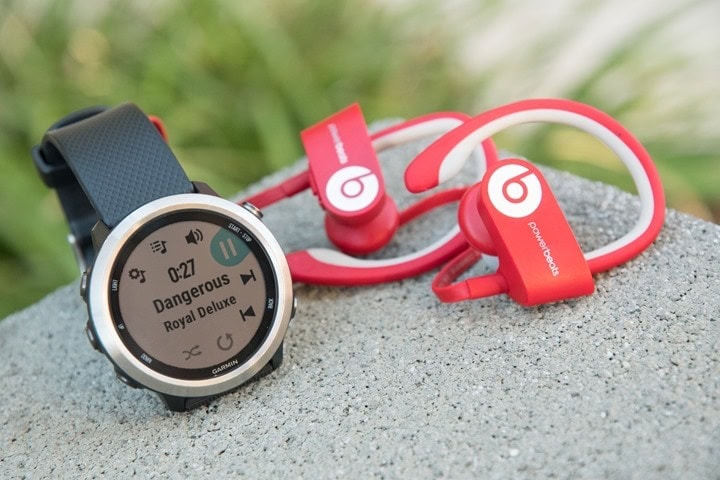
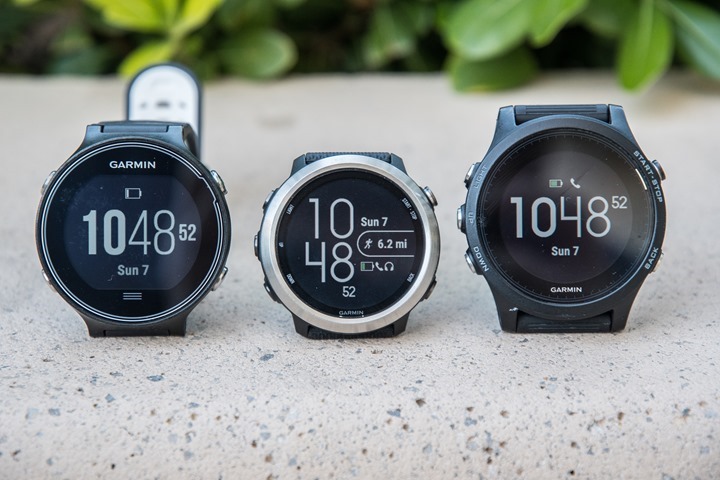
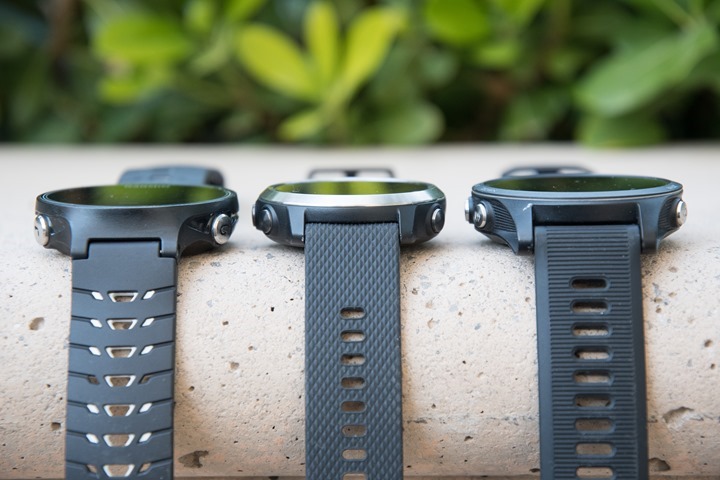
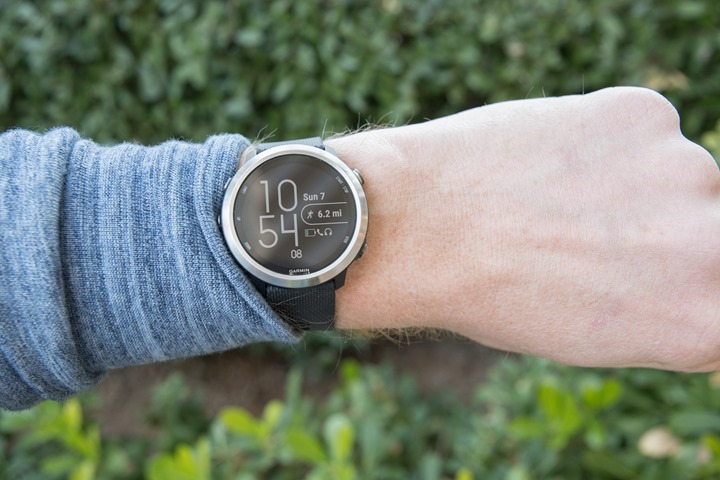
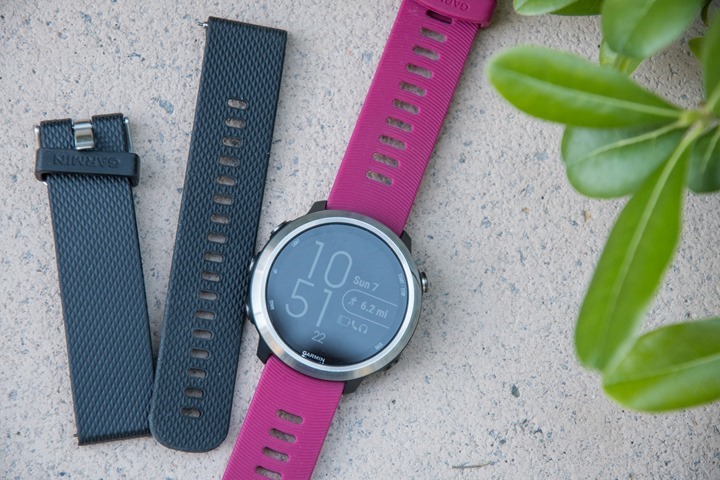
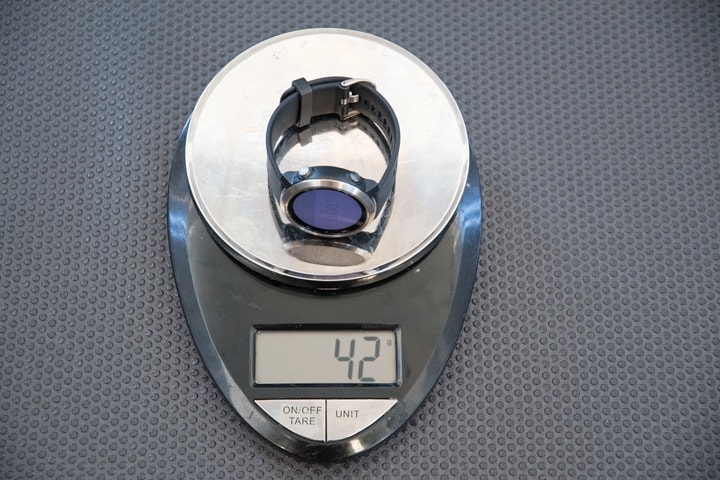
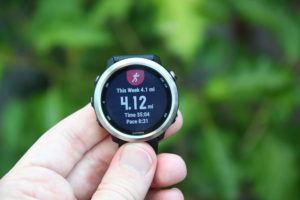
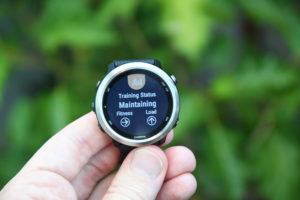
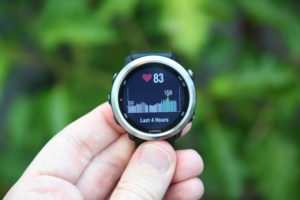
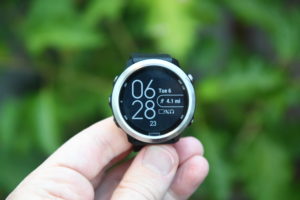
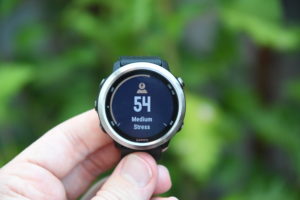
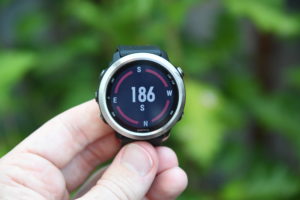
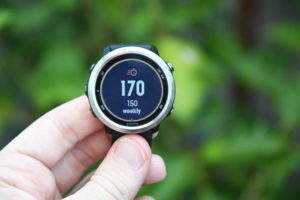
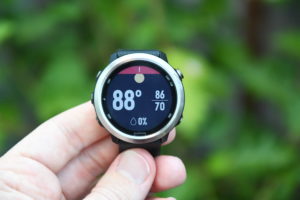
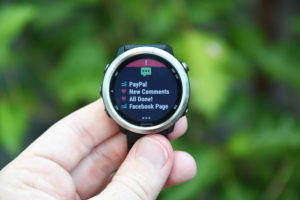
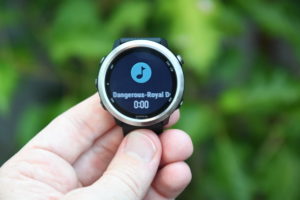
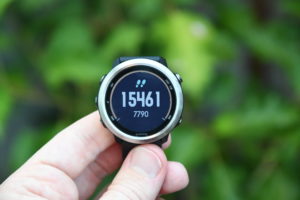
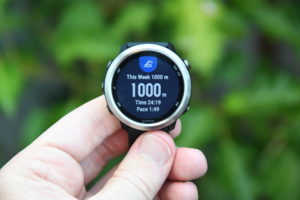
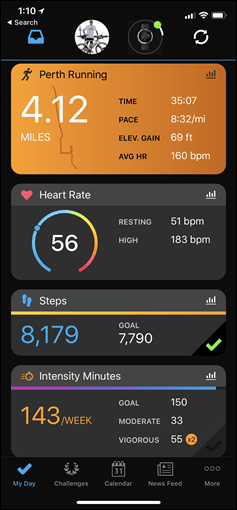
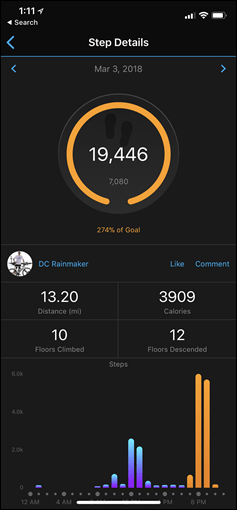
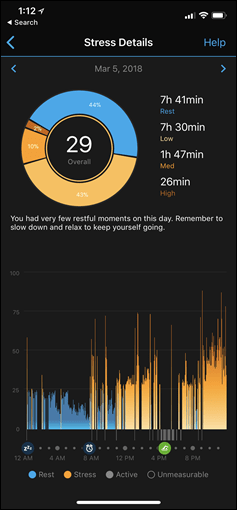
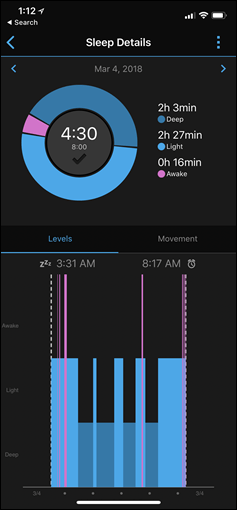
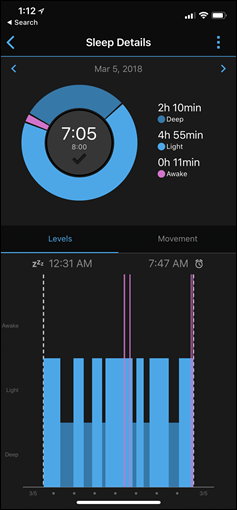
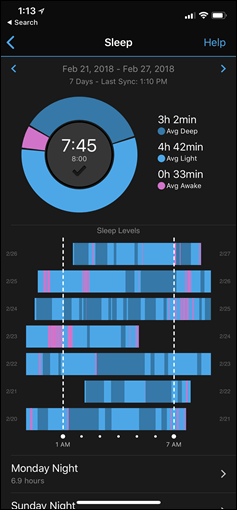
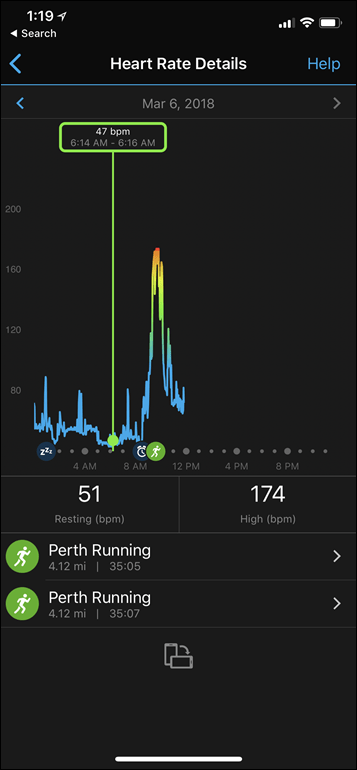
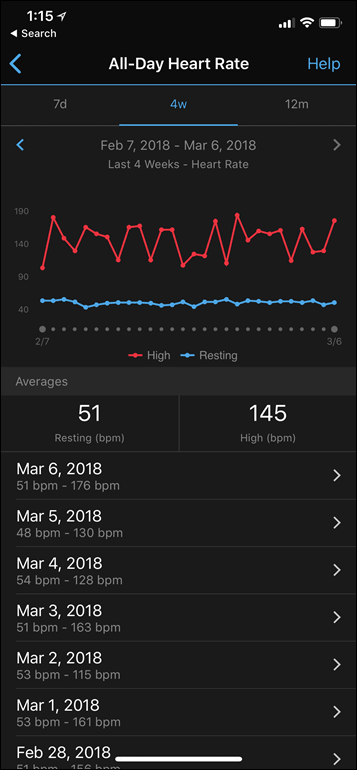
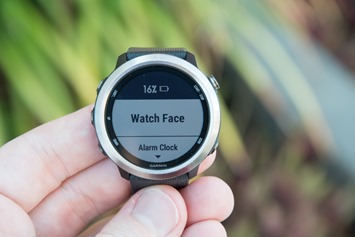
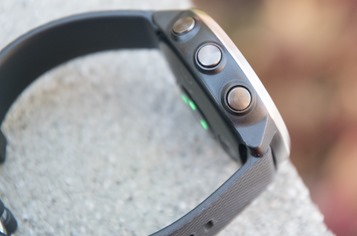
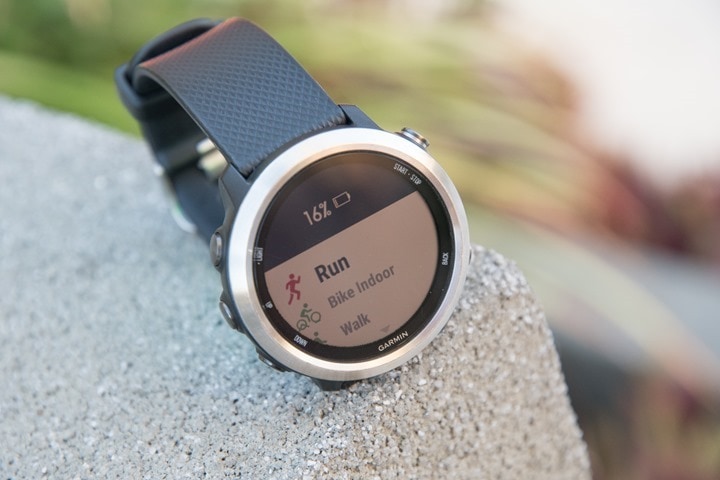
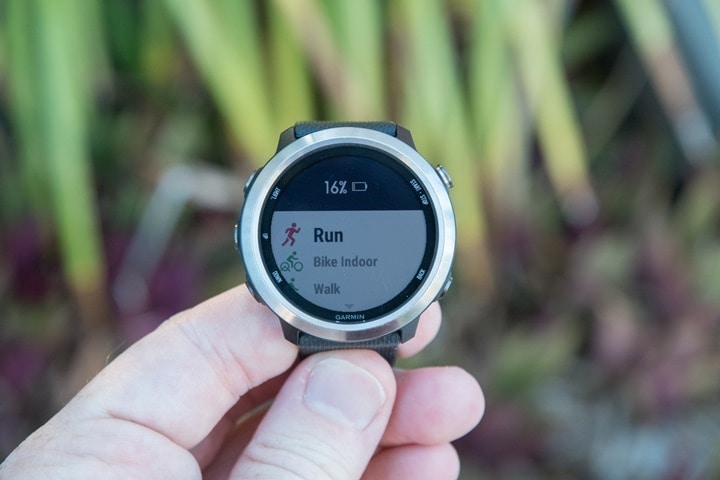
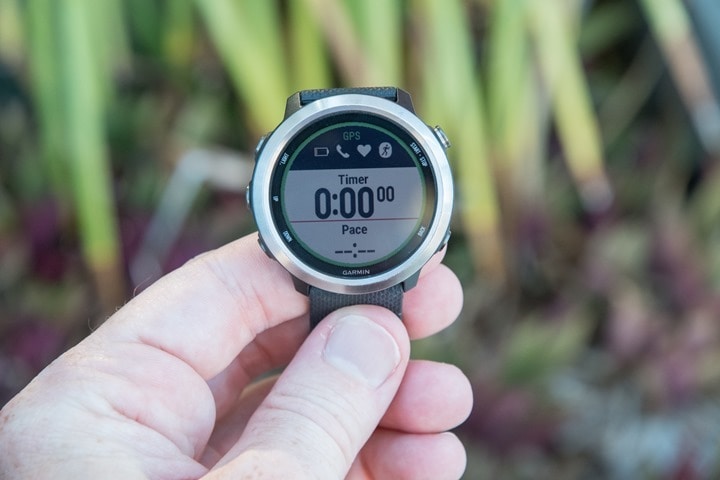
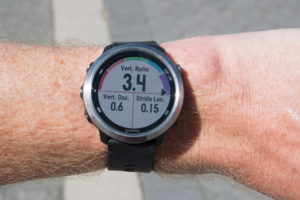
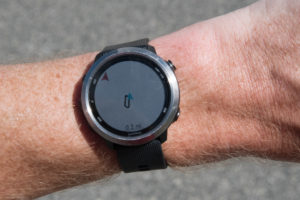
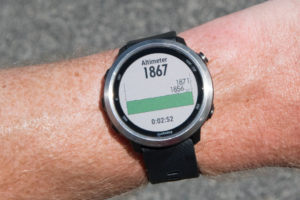
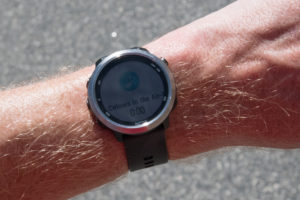
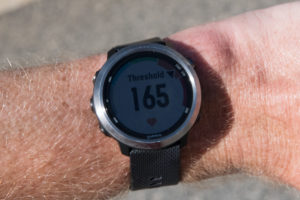
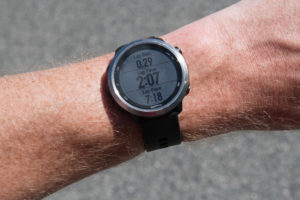
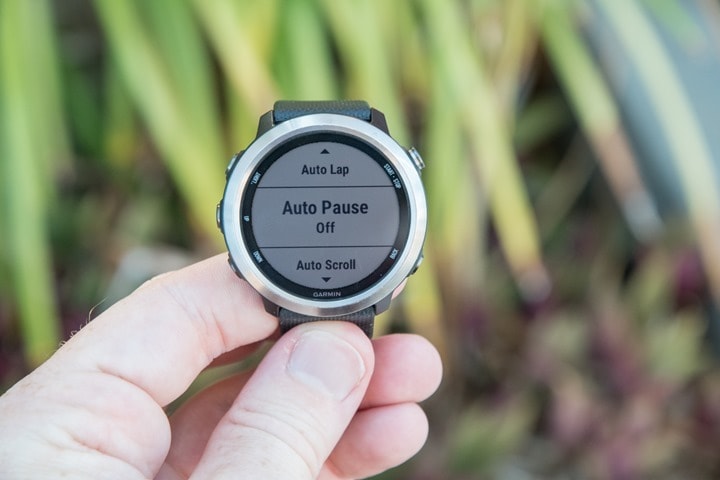
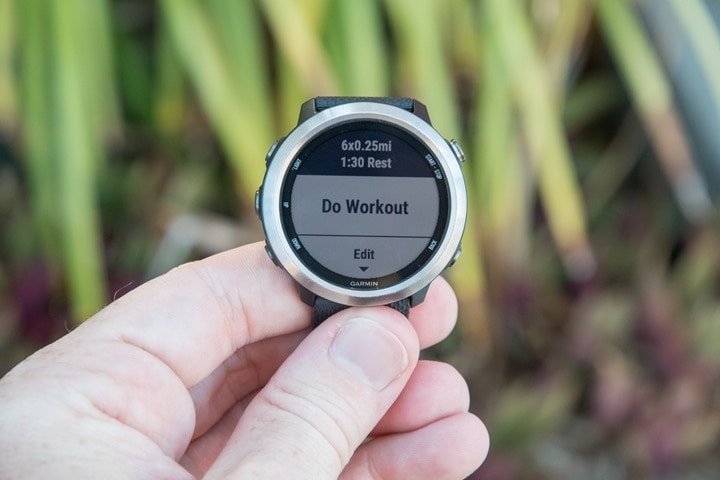

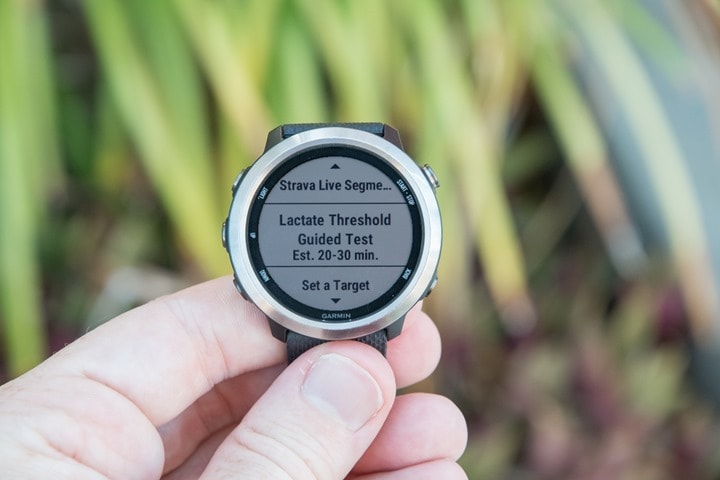
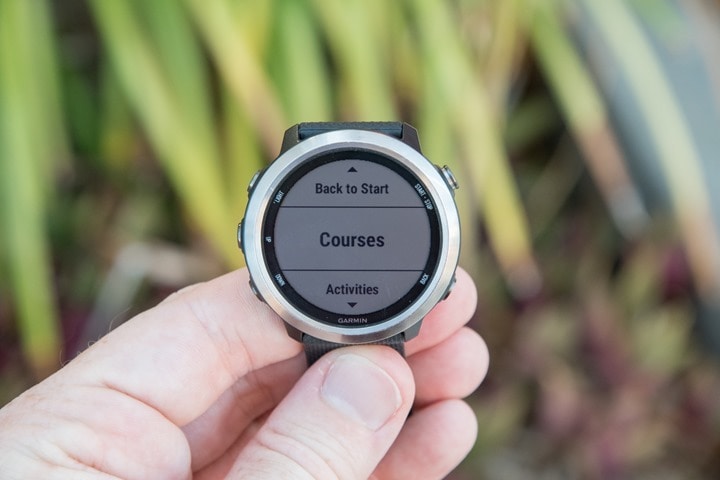
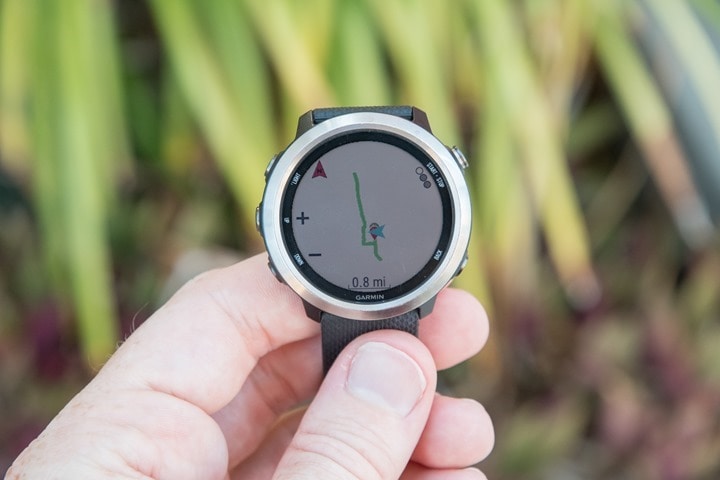
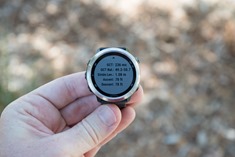
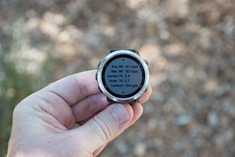
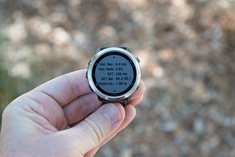
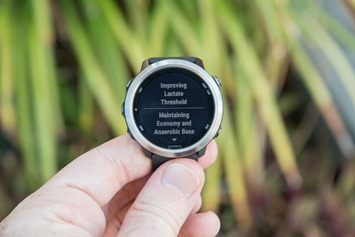
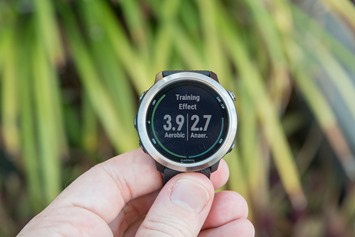
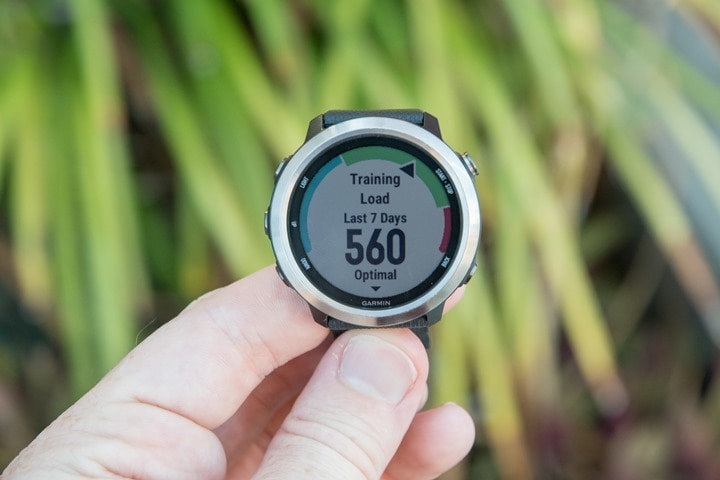
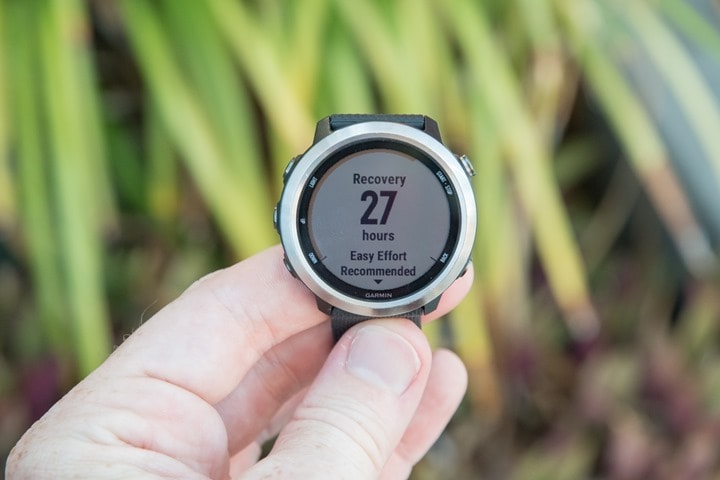
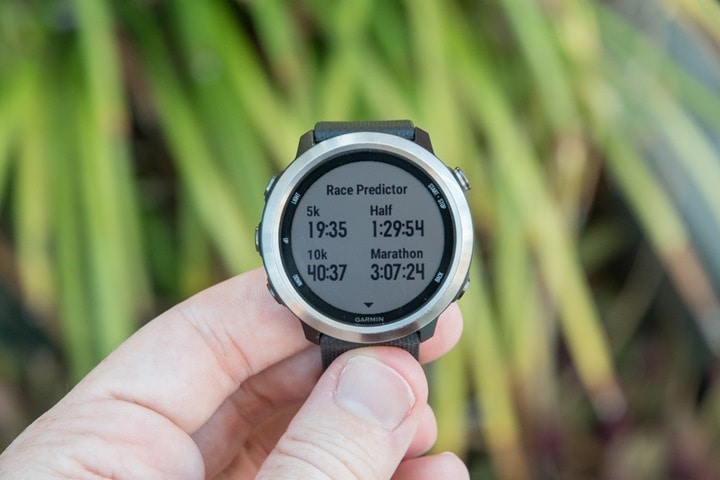
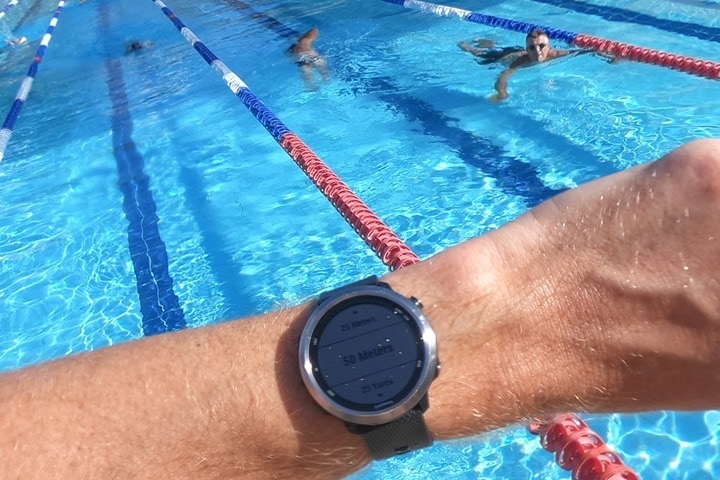
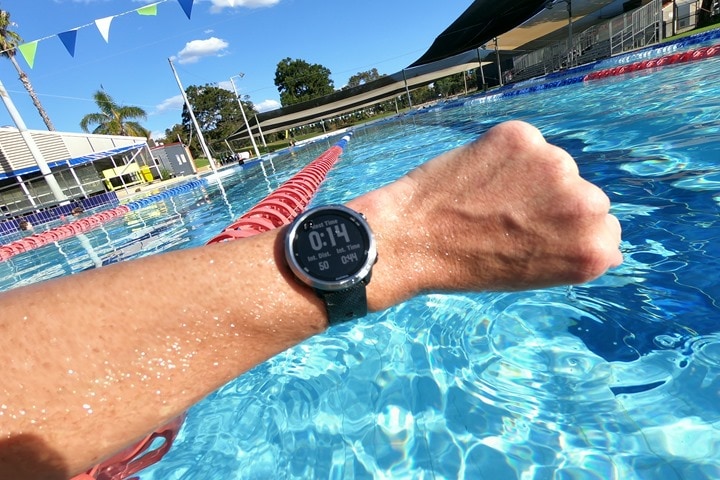


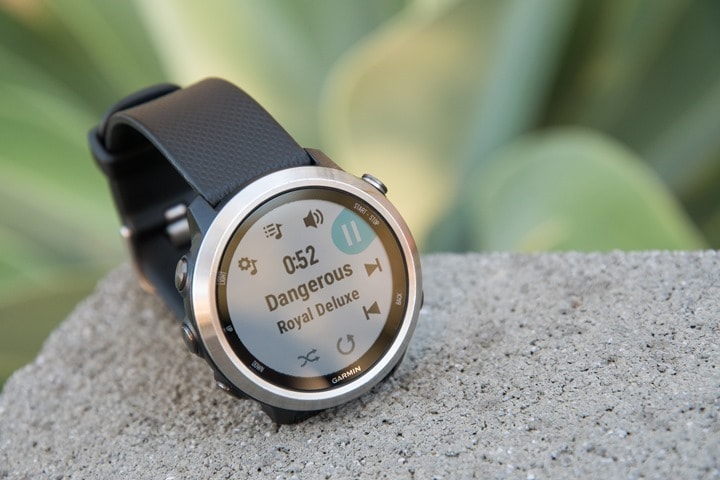

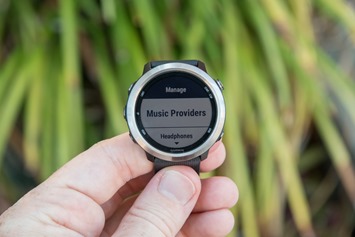
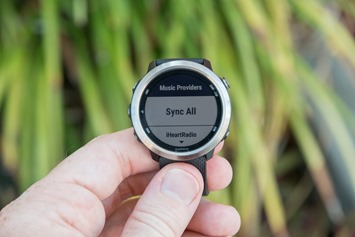
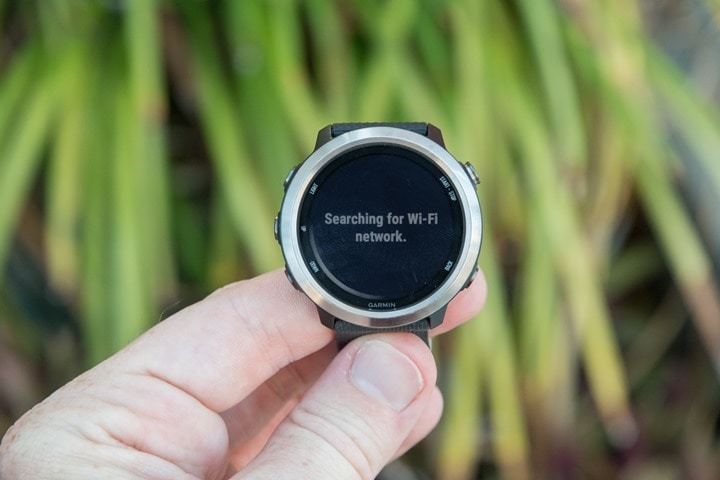
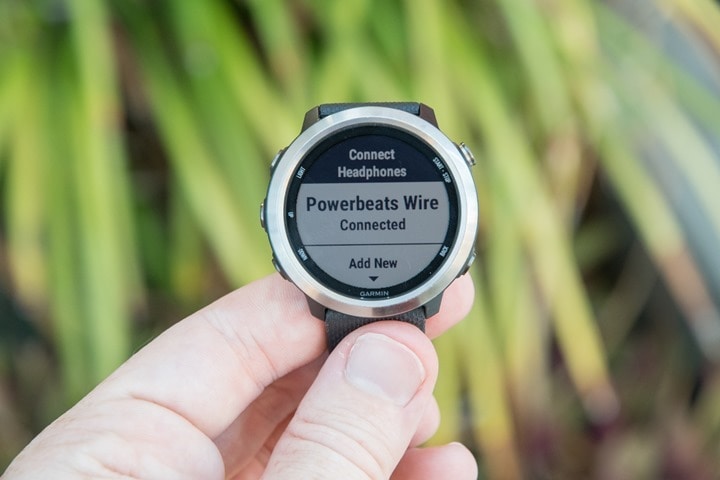
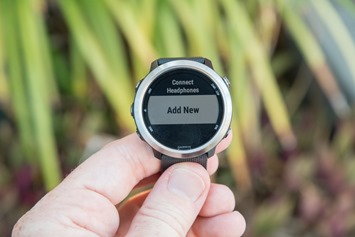
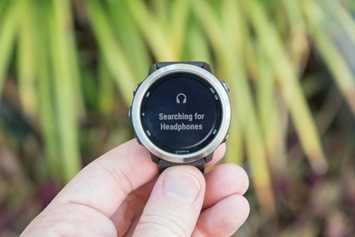
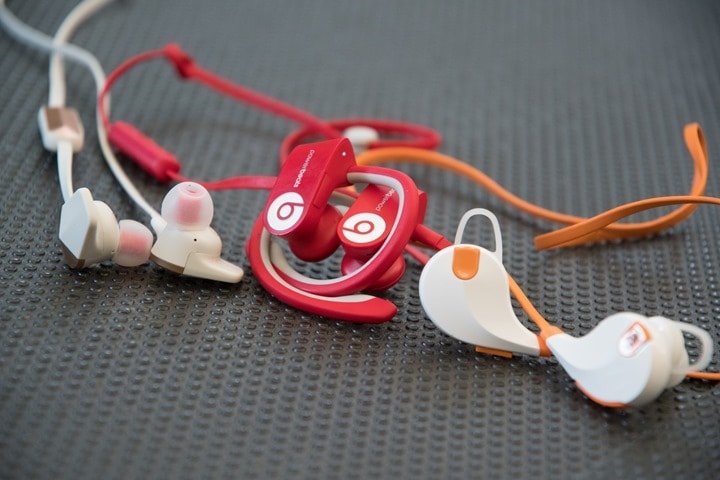
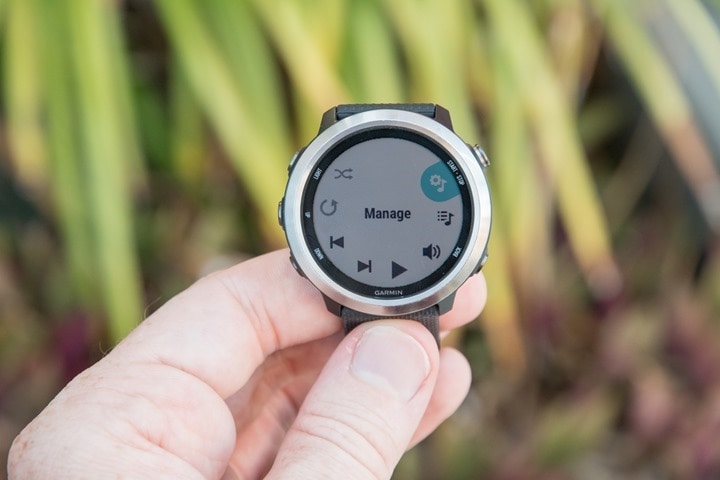
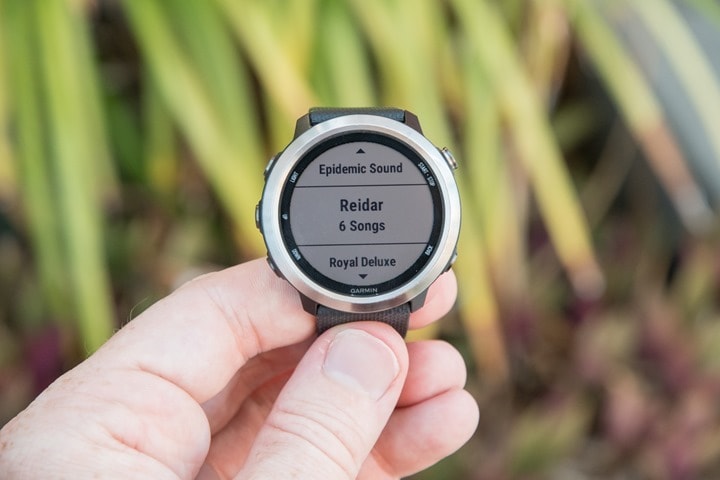
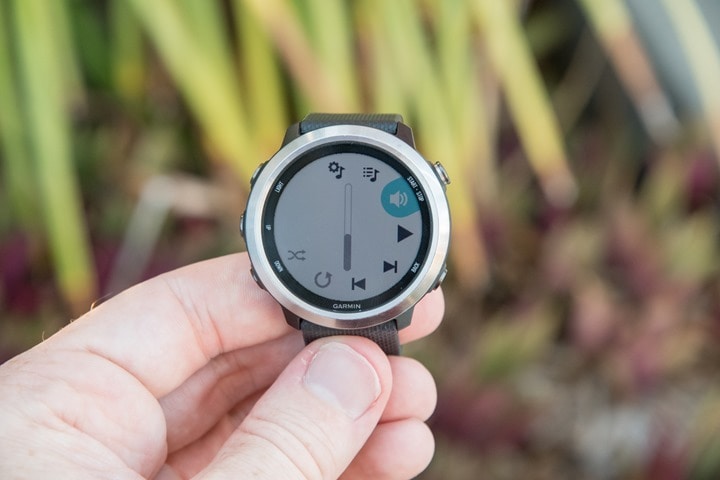
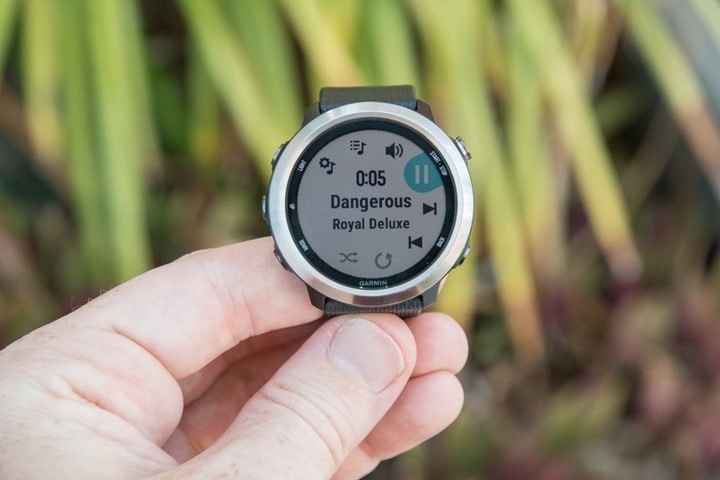
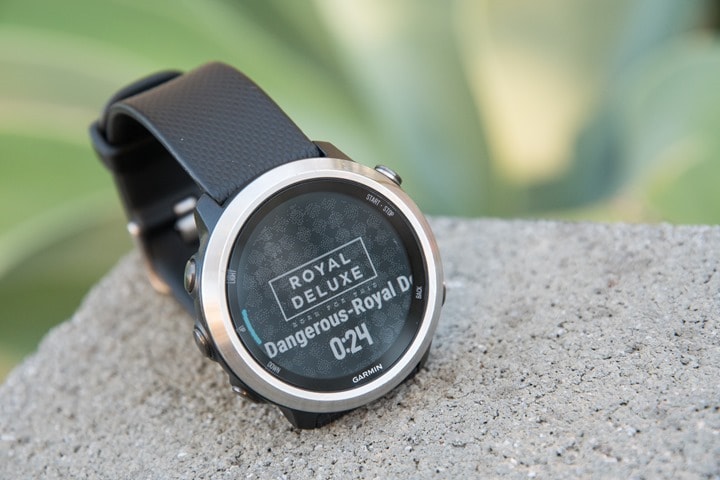
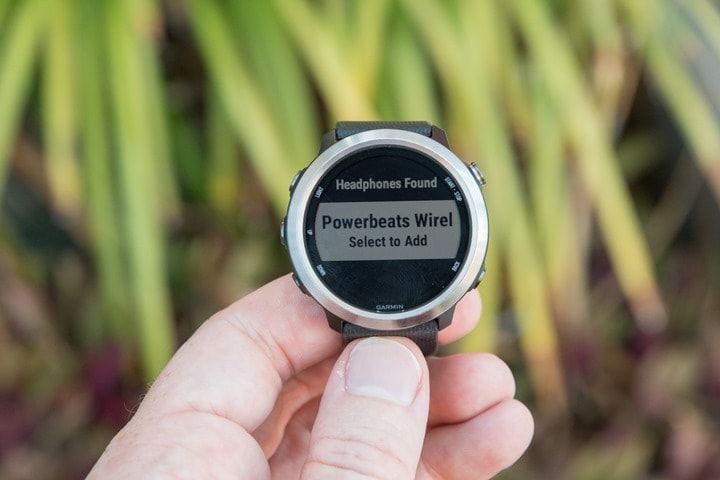

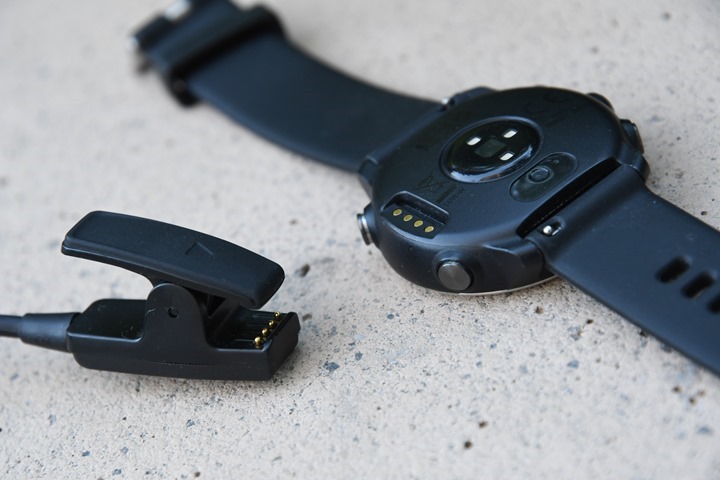
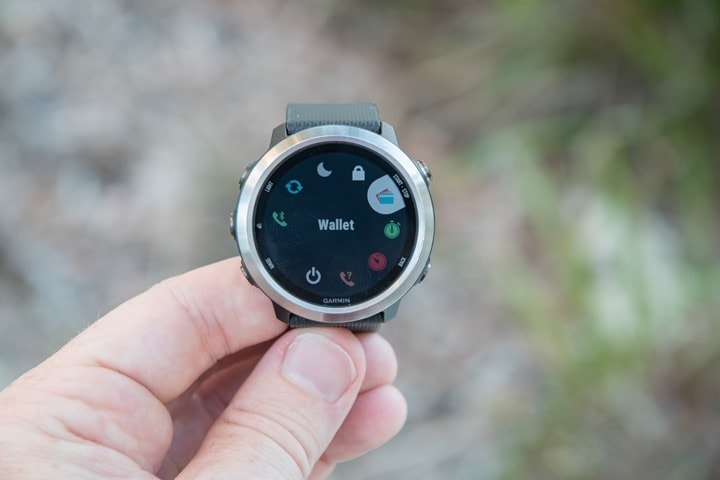
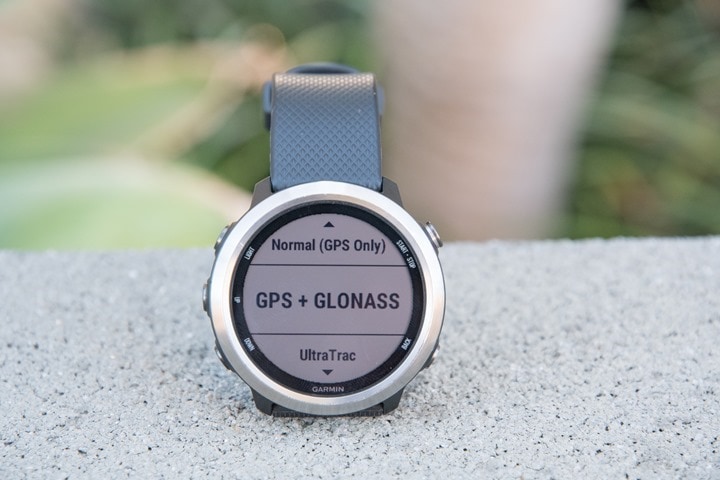
















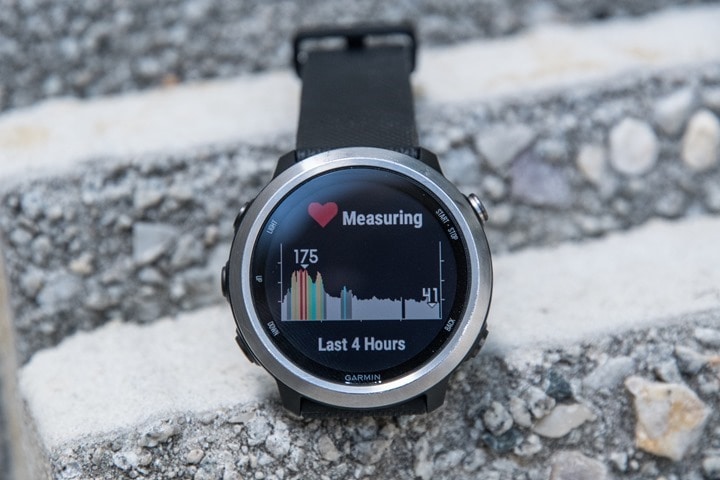
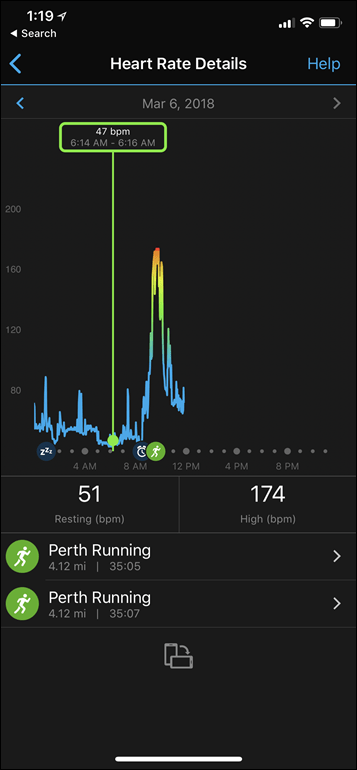
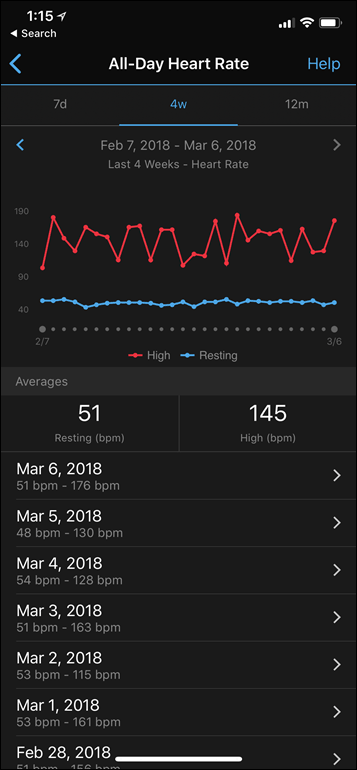













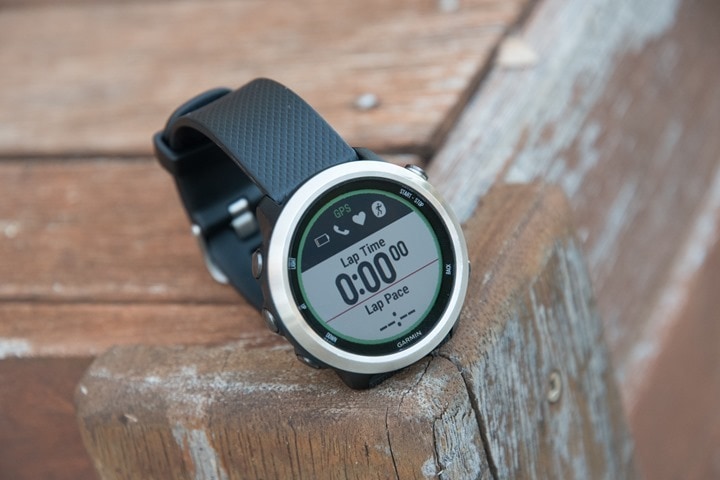
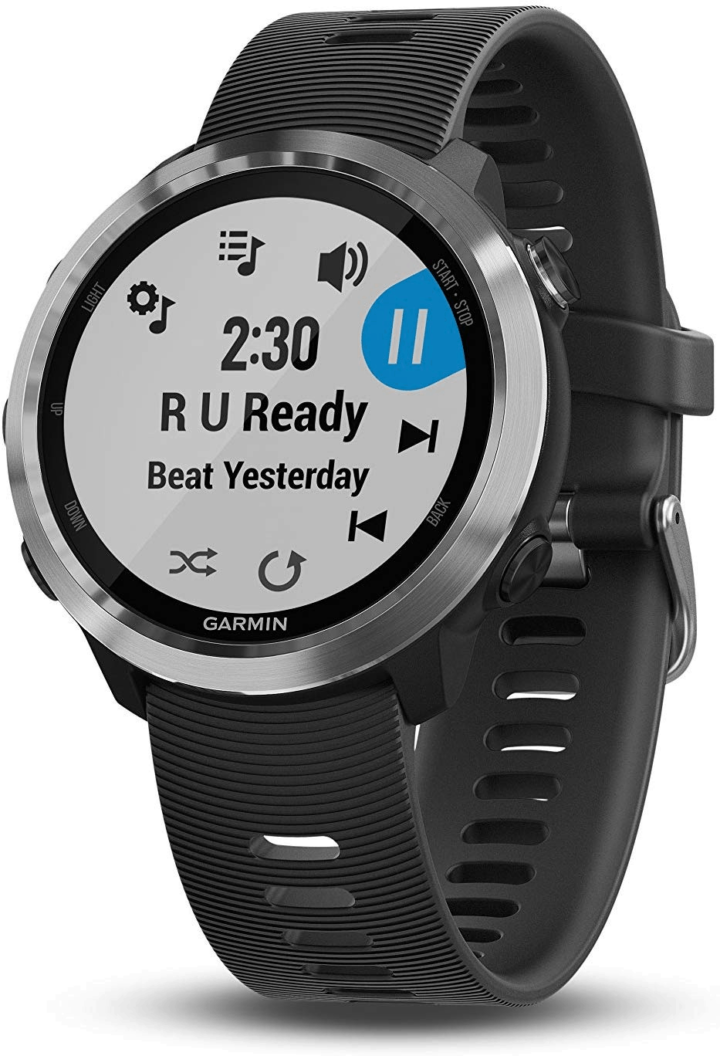
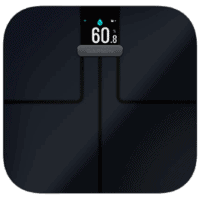
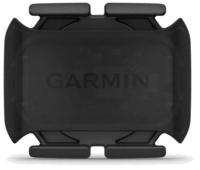
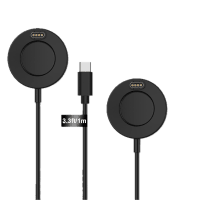

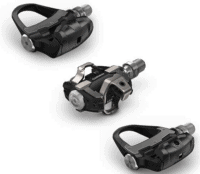
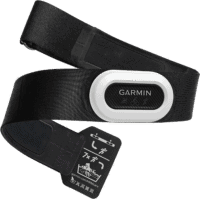





















Hi Folks,
I just received and started using the Garmin 645 Music, and have a some odd measurements (see attached image). The screenshots show a very elevated heart rate despite going downhill steeply! My pace did increase somewhat, but I can assure you my breathing and heart rate could not have been so high during that period.
The third screenshot, which is a map of the run, shows a long straight line at the start of the run, which is probably about a mile and a half in length that should not have been part of the run. In fact, I was not anywhere in that area at all, and I did not start the device until I started my run (which is at the same point where I ended.
Has anyone experienced anything like this or have any ideas what is going on here? I’ve had other Garmin (and other brand) devices without such wild abnormalities. By the way, I am using the wrist heart rate sensor, and I made sure it was tight on my wrist.
Thanks
Every now & again I get strange HR readings from the non-music version eg. reading 140+ while I’m doing the easiest recovery jog. What I found is that stopping the run & doing a soft reset of the watch (by holding in the power button ’til it power off) seems to resolve whatever issue it was having & when I start my jog again, it reads ~110 which is more what I’d expect.
I contacted Garmin about this but didn’t get any real answer except boilerplate text about how to wear it correctly etc. Given I don’t take off the watch to do the soft reset it looks more like some software issue to me, hopefully they’ll resolve it at some stage. In the meantime I just wear my HR strap for anything that I’m interested in getting accurate data for as you can’t really stop in a race to reset your watch :)
To be fair I’m far happier with the 645 than when I got my previous 620 as it really was cr*p for the first six months or so ’til various firmware updates whipped it into shape.
I wanted to update this after running the same route with a Garmin chest strap (see attached picture showing comparison between optical wrist sensor on device and a Garmin chest strap). In my opinion, the optical HR sensor was not even close. The chest strap seemed pretty accurate as it certainly read something close to how I felt, how hard I was breathing, etc.. Either something is wrong with my specific copy, or the optical technology in this device has a long way to go. I guess it’s always possible that it was user error, but not sure what I could have done incorrectly. I did have the wrist strap on fairly tight.
Here are the direct links:
Using optical wrist sensor:
link to connect.garmin.com
Using Garmin chest strap:
link to connect.garmin.com
I’m also going to post this on Garmin’s forum, and contact them.
Thoughts?
My initial thought is that it is hard to compare the two since your pacing is so different. I’ve been meaning to compare the optical in my 645 to the HRM-Run and my old Scoshe Rythym but I can’t find my 305 to use to capture the chest strap so that an apples to apples comparison from the same run can be made.
The pacing is really not that different, except that my pace was slightly faster during the 2nd run (with the chest strap) once I started downhill. You’d think that my heart-rate should have been higher than the first run during that segment then. If you look carefully at the first run with the optical sensor, you can see that my heart-rate did not drop despite going slowly downhill. I can tell you that during that segment I was breathing much more easily, and the effort felt low. My recorded hear-rate should have dropped substantially as it shows on the 2nd run with the chest strap.
I observed the same issues with my FR 645 non-music.
As long as my HR is below 90%, the HR recording seems quite in line with my feelings and my previous watch (FR220).
During hard workouts with HR going above 90%, HR often stays stuck on a fixed value during several minutes.
And I tried to pay special attention to how the watch is placed on my arm.
I did actually see similar issues with my 645M on a hill sprint section towards the end of my 4.5 mile route. The sprint itself and some of the slightly uphill after it show up as a flat HR value, sometimes less than my HR right before the hill. It was actually one of the motivators for me to drop the money on a chest strap since I plan on doing more hill sprint workouts in the near future and want accurate HR data.
Wow; well if that is consistent with all the device in general, then the oHR is only useful for sleep and easy workouts, which in my case is relatively useless.
I spoke to tech support at Garmin; they suggested I ‘reboot’ the device right before my next run and try again with the oHR. I will do that tomorrow and report back.
I’m guessing I’m going to have to stick with a chest strap to get accurate measurements, as the oHR is not even close!
See my post #587 earlier, hilariously Garmin support told me that I shouldn’t need to reboot it prior to an activity!
Do you find that if you reboot it just prior to an activity, that it works well throughout the activity? Or do you just reboot it during the activity when it seems it’s not working properly?
It’s good to know that at least with your 620, that firmware updates resolved some issues.
I was doing the soft reset before each activity but now I’ve just started wearing my old HR strap for when I’m interested in the HR data from the session (eg during a hill training session yesterday) but for this evening’s longer easy run I pretty much ignore it!
Ok, thanks. It will be interesting to see if that will do the trick; will know tomorrow if it doesn’t rain.
Went on the same run again this morning, but followed Garmin tech supports advice, which was to at beginning of run: 1) Turn off wrist HR in Settings; 2) Turn off watch and wait a minute or two; 3) Turn watch back on; 4) Turn on wrist HR.
I did this and had essentially the same results as with the wrist HR before without doing this procedure. What is interesting however, is that I reset the device while running a couple of times (thanks John Kissane for that suggestion) when it looked like the HR was not dropping correctly. Right after the reset, the HR dropped quite a bit to what a feel what its correct value (you can see that in the attached image). It seems to me that (unless something is wrong with my copy) that Garmin’s algorithm for calculating HR from the oHR is very poor. They seem to tie HR with pace, and don’t take altitude into consideration. You can see that somewhat by examining the graph; HR did NOT drop while running downhill, but as soon as I started walking at the end, it dropped quickly.
Here is the direct link to the new activity:
link to connect.garmin.com
And I thought my soft reset was a pita to do, the suggestion from Garmin support sounds a lot worse! My own thinking was that if the reset fixes it for a while then at least it’s not a hardware problem meaning there’s at least a sporting chance it can be fixed in software. Not that I got anything of use from support, they just send me boiler plate text on how to wear the watch, it’s like they don’t even read the request.
For me, the soft reset only ‘fixes’ it for a few seconds, then it starts misbehaving again! I just got off the phone with Garmin, and have created a case. They are looking into whether the issue is with my specific copy, or all 645’s in general. I may end up exchanging my copy to see if the hardware has anything to do with it. Unless my copy is faulty, I am quite surprised at the result that Ray (DC) got in his tests, although not great (particularly with intervals), was certainly better than mine!
Please keep us all in the loop as to what happens.
Will do!
Thought you guys might find this interesting. I was looking at the HR plot for a walk I took and noticed what seemed like odd readings where my HR seemed to go up and stay up after a hill section had leveled off. However, this was also the point at which the watch had felt a bit loose and I had tightened it on the walk. There is a distinct difference between the reading before and after the adjustment (shown with the blue arrow in the picture).
So the area before the arrow is AFTER the hill section leveled off? Was there another hill after you tightened the watch, or did your pace increase? The graph shows an upward trend in heart rate after that point.
There was a slight hill section at the end that may account for that upward trend. The main point is that there was no increase over 2 hill sections in the middle but a steep rise and after tightening the band. Basically it looks like the band being tight enough plays a role in the accuracy of HR data.
Ok, thanks for the info and good to be aware of. In my case though, I feel I did have the band fairly tight; it would be uncomfortable if it were any tighter.
Had to do the same soft reset trick again on a run this evening, HR was showing ~145 while I was doing the easiest of jogs, after a k I paused the activity, did a soft reset & once it was back alive continued on my way. My HR average for the 14k jog was 108 which shows just how crazy it was reading at the start!
The Garmin 645 Music will likely be my last Garmin Product. Its my 3rd running watch from Garmin with the same unfortunate result. They seem to work as advertised for the 1st few weeks then the failures begin. It freezes, burps and has difficulty acquiring the satelites in different cities. When it works its amazing. I’ve tried software updates, resetting to default settings, restarts and all work temporarily but then back to freezing up again. Also, I travel a lot as I fly for a living. The Spotify works well as long as I hit my home wifi but if I’m on the road for 4 days no music on day 3, it dumps the Spotify playlists. It took me an hour to get it to finally work yesterday in Charlotte and thats the last time I’ll ever use it. I just shipped it back to Amazon. I thought that it may have been a memory issue so after I uploaded workouts to Garmin website, which I really like and will miss, I would delete them from the watch but that did not help either. My Suunto Spartan which is 2 years old has never once given me any real issues so I’ll go back to using that. Too bad really, I think that Garmin has just tried to put 10 pounds of s$!# in a 5 pound bag.
If this product worked as advertised it would never require a reset. I am down to having to do one about every 5th workout, so twice a week I’m fighting with it and sometimes I just dont have time. My Suunto Spartan doesn’t do half of what this Garmin is capable of, but it always works. I am also beginning to believe that none of these wrist mounted HR gadgets work well during workouts. The Suunto is usually close then I’ll look down and see 188. I’m 58 and rely on the recovery times and erroneous HR’s throw the recovery times out the window. So I use the Suunto watch and a Polar HR strap and have been injury free for years.
The battery life on my watch is still most 2 days and I am not even using the gps or the music. Any ideas why? I bought at REI so still have time to return it. Thoughts?
There’re several advices on power saving on Garmin’s web, such as shutting down wifi. You may take a look.
My 645M only last about 4 days, 3 days shorter than 645. Firmware version 2.8 seems to eating more power than 2.7.
I’vve had the watch a couple of months now. I’m very please overall. I have some minor issues with the watch losing bluetooth connection to my phone. (IOS)
I haven’t used the music player much until today. I had a pair of cheap $25 wireless in ear earbuds that I bought on Ebay. I wasn’t expecting much, but I wore them on my 6 mile run today. There were almost no dropouts and the connection was great. probably the best of any music watch I’ve tried. I really wanted test the audible announcements (laps)
I can provide a link but these are the only headphones that I’ve gotten to work consistently with the device.
Any Deezer News, was disappointed to see the announcement about FitBit + Deezer integration.
I may have held off on the 645M and got the fitbit.
Have some music transferred but dont have a great selection available ripped anymore as been using
streaming services for so many years now :)
Anyone seen an error on the watch saying something like “Activity memory almost full, upload to garmin connect”? I got that & when I checked via Windows, the drive on the watch was 100% full of which the Activities folder consumed the bulk of the space. Easily fixed by deleting all the activities as they’d all been uploaded to GC already but my guess is that it’s not doing it automatically. My previous watch was a 620 and never exhibited this behaviour.
I opened a ticket with Garmin Support who just gave me a one line asnwer saying it automatically deleted old activities but then why the error message & it had never deleted anything on mine as it had everything since I got the device in March,
I had the same kind of error message yesterday on my Forerunner 735XT. I have never experineced this before as the watch has always deleted the older excercises when memory has been low. After I was running today I realized there was only one excercise left on the watch – the last one I did today – as all the other excercise files had vanished somewehere.
Yep, just started getting this message too.
Would be interesting to see what happens if you ignore it. I just connected the watch to my PC & cleared out the entire activities folder as it showed the drive as 100% full.
If you have time open a case with Garmin, I kind of gave up on them when they suggested I swap the watch despite telling them others had seen the same thing thing :)
In older generation Garmin watches, if you keep ignoring the memory full messages but don’t upload, eventually the GPS waypoints get deleted and you end up with a summary of the workout. But the warnings only happen if you don’t upload, so this is most likely a bug.
Does it has a running on a treadmill profile?
You shoud add on your reviews if the devices can be used on a tredmill.
Can you advise?
Yes it does.
Hi! I am currently trying ti decide between de 645 (without music) and the vivoactive 3. I dont normally create workouts ok the watch, and am concerned on battery Life (for ultras) or the possibility of charging it during the activity. Are the training load features the same on both watches? Thanks!
My wife has the vivoactive 3 and I have the 645M. I would say the battery life is a bit better for her than for me – but I do listen to music so if I turned that off it would probably be about even. However, the charging plugs are different I don’t believe the 3 could be charged while running – the 645 could.
The 3 also only has V02max and All day stress, not training load metrics.
I would hands down go for the 645, looks much better and the battery lasts much longer. I am using the non music variant. I returned my Vivoactive 3 as the battery life was awful.
Hi Ray, hi Garmin-Joey,
I’ve been also facing massive issues with optical HR, especially during cool downs. After a marathon fun training I’ve recently started trailrunning again. And here comes my massive complaint; optical HR is totally off when using sticks, most time around heart rate 100. This makes the Garmin 645 unusable for every trail runner. Have you heard about this? I will have a constant look on this and return the watch in case it continues.
Thanks
Martin
This wouldn’t really surprise me. Wrist-based optical HR is tough when you’re holding tight to something in your wrist, like poles. You could consider trying the other wrist, or moving the watch a bit further up your wrist. Else, you’re probably have to look at something like a chest strap or an upper arm sensor like the Waoo TICKR-FIT or Scosche Rhythm+/24
Always good to get a competent answer so quickly. Really appreciate it – thanks, Ray!
So do I understand right that optical HR struggles when you’re holding on to someting? Could this be the reason it generally isn’t great while cycling too?
Hi Ray,
Looking at differences between de Music and non-Music version… does the Music version have more memory available for Connect IQ apps? In the SDK there is quite a big difference between them.
645
645M
Even if you don’t use Music, the Music version could be more interesting because of this supporting more ‘fancy/heavy’ Connect IQ apps?
Not all text seemed to be included in my previous post:
645
“watchface” memory_limit=”98304″
“watch-app” memory_limit=”131072″
“widget” memory_limit=”65536″
“datafield” memory_limit=”32768″
” memory_limit=”32768″
645M
“watchface” memory_limit=”131072″
“watch-app” memory_limit=”1048576″
“widget” memory_limit=”524288″
“datafield” memory_limit=”65536″
“background” memory_limit=”65536″
According to a user on the Garmin forums they have the same limits:
>>
Devices are the same according to common-used app types:
645:
645m:
645m has new app type – music content provider.
<<
So possibly the Music Content Provider app type alone has the limits you are referring to.
sigh…
Devices are the same according to common-used app types:
645:
app_types
app id=”watchface” memory_limit=”98304″
app id=”watch-app” memory_limit=”131072″
app id=”widget” memory_limit=”65536″
app id=”datafield” memory_limit=”32768″
app id=”background” memory_limit=”32768″
645m:
app_types
app id=”watchface” memory_limit=”98304″
app id=”watch-app” memory_limit=”131072″
app id=”widget” memory_limit=”65536″
app id=”datafield” memory_limit=”32768″
app id=”background” memory_limit=”32768″
app id=”audio-content-provider-app” memory_limit=”262144″
645m has new app type – music content provider.
Ah, but for the the new Connect IQ 3 the numbers ARE higher for the 645M:
>>
The 645:
app_types
app id=”watchface” memory_limit=”98304″
app id=”watch-app” memory_limit=”131072″
app id=”widget” memory_limit=”65536″
app id=”datafield” memory_limit=”32768″
app id=”background” memory_limit=”32768″
app_types
The 645m:
app_types
app id=”watchface” memory_limit=”131072″
app id=”watch-app” memory_limit=”1048576″
app id=”widget” memory_limit=”524288″
app id=”datafield” memory_limit=”65536″
app id=”background” memory_limit=”65536″
app id=”audio-content-provider-app” memory_limit=”262144″
app_types
So with CIQ3, there is more memory for apps on the 645m
<<
Got my Forerunner 645M about two months ago. It was working great and I was really happy with it. That is, until about two weeks ago, when the “elevation gained” and temperature readings started malfunctioning. I couldn’t care less about the temperature stuff (reading 99 degrees as the min, max, and average temp for each activity), and mention it just in case these issues are related. The far greater issue for me is that it’s been reading every bike and run activity as zero feet. I did a 46-mile ride the other day that I know had about 2,000 feet of elevation gain, but it was reported as 0 feet and the elevation plot was shown as completely flat (0 feet of ascent/descent). This information is rather important to me and I would like to be able to record it without having to constantly use the “elevation correction” feature on Garmin Connect. Have you ever run into this problem? Do you have any idea how I might be able to fix it?
I just upgraded from FR735XT to the 645 (w/o music).
The 735 polled HR when not in activity mode, so when going out for a run/ride I had to give it some time to actually lock on the HR to provide reliable measurements.
Is there a similar requirement for the 645 given that it has a 24×7 HR? Would that mean that it always is properly locked on my HR to give valid measurements even during a workout?
The 735 flashed the heart symbol while providing estimated HR until it locked and the heart symbol got solid. How do I know that the 645 is on its toes before starting my workout or isn’t it necessary anymore?
Just got the 645 and like it so far. One question in the 945 there was a native altimeter app. Does Garmin have one for the 645?
Does anyone happen to know when/if/how often the heart rate zones are updated? I’m fairly certain mine have remained the same since I started using the watch a few months ago, while seeing a 5 point VO2 max increase (detection is set to auto). Could be I’m misunderstanding the relationship there, but my assumption is the zones should change as well. I couldn’t find this addressed anywhere in the Garmin manual.
Got an email today from CT that they are selling a slate and rose gold version of the FR645 now. Especially the slate version looks vey nice. However, when you go to their site, both new colors are nowhere to be found. Did they make a mistake?
how to navigate to interface of altimeter as picture u shown? i am using fr645 music v3.2
Are there any known differences (i.e. smaller battery, music module discharge even if not in use) which should render the 645M’s battery life shorter even if no music is ever played?
So basically, if a 645M and a 645 are compared in terms of battery life without listening to music, how would they fare one against the other?
Quick question, is the watch face always on? Or is it movement based.
Always on.
DC, do you or anyone else know if you can charge the FR645 Music while running? I’m looking for something for longer days of hiking, and the advertised 14 hours of battery looks good, but it would be nice to have a watch I can charge from a portable battery while I eat lunch without having to stop the activity.
Thanks for all the great reviews,
Dan
The watch has a resume activity feature. When you press the start/stop button you will have a ‘resume later’ option. If you use that the watch will go to normal watch mode and you will be able to charge it. As soon as you press start/stop again, it will immediately go to the activity you stopped earlier and resume it. That way the activity will be stored as one activity, with just a time gap between the stop and resume time.
I’m a huge audiobook while running (or doing anything) guy, has anyone tested this feature of the watch? I am not worried about audible or whatever, all I need to know is if it will auto bookmark or allow you to bookmark your spot. It’s no fun to fast forward through a 30 hour file to find your spot everyday…
Thanks for any help!
I’ve tried using this feature but gave up because the audiobook I was using was one mp3 file (300+ MB) in size. I’d been listening to it already on my phone so wanted to jump about 1.5 hrs in and the watch made that VERY difficult. Eventually after it crashed twice I gave up. It’ll be easier with an audiobook in multiple files which is the norm, but then I don’t know if the watch is clever enough to play these files in sequence.
Sorry I’m not much help but am interested in hearing from others with more experience.
Hi
I have a Garmin FR920 that I love. It has a big square programmable display. I’m thinking of buying a FR645M and I’m concerned I cant customize the display for runs. The 920 you can put whatever you want in whatever place you want on a quad display. I can’t find any info that will confirm that the 645 will do that.
Love your reviews.
Thanks
John
Yes it is very customisable
Please check out
link to youtube.com
Hi Ray,
thanks for your great review! Are there any news from Garmin concerning the sync of FirstBeat data over multiple devices, as you wrote above?
„Specifically, the following units will cross-transfer the advanced data:
Edge 1030
Fenix 5/5S/5X
Forerunner 645/645 Music
Forerunner 935
Vívoactive 3“
Which devices are planned to be able to sync?
Thank you,
Michael
hi guys, is there any news about the deezer integration with the 645?
Deezer just came out in Connect IQ in the last day or two.
WOW! Thanks!
HEY DCR,
I’m looking to buy the good lady a decent GPS sports watch for our anniversary.
Running is her main sport. In the UK just pricing is £360 for both the 645 Music in Pink or the Fenix 5S in
White. She won’t be overly bothered by pay and the music might sway her a little, but probably not!
Is there a clear choice here? And any thoughts which would stand the test of time better?
Many thanks,
Tony
Hi –
How are people feeling about the 645/M altimeter function?
I came here because of serious altimeter issues reported in the Garmin 645 forum, link to forums.garmin.com , with I thought someone mentioning there that DCR had gotten some helpful info from Garmin and posted it here, but I couldn’t find anything like that.
I am in the market, but after reading all those posts about the 645’s altimeter problems I started looking (again!) at the Fenix 5S Plus. It seems like the Fenix 5S Plus is having altimeter problems also, possibly fixed with an update: link to forums.garmin.com . If the 645 altimeter problem is real, maybe a fix is forthcoming there also?
Bummer, I had talked myself down from the Fenix 5S Plus as I’m just a runner, and the 645’s size seemed perfect and the stainless steel bevel made it “formal” enough for me to go to work in (I don’t need a Chronos, or even a metal band), but good altimeter readings are important to me. (I suppose there would be a way to replace the 645’s faulty altimeter readings with accurate data from a 3rd party app to put into Garmin connect, maybe?)
(PS – a little OT … is anyone having trouble registering at the Garmin forums? Multiple times I’ve put in the correct log in info after registering a week or two ago, and it just changes to the original page with “login” at the top right, instead of my name :( )
The last update seems to have fixed some of the gross errors I had with altimeter readings. Prior to the update, I did hill intervals and the altimeter data showed flat or a slight downhill. When I talked to support about it, they said it was within reading tolerance. Since the update, it shows the hills. I don’t know the actual altitude of my route so I can’t speak to the altimeter’s absolute accuracy but it seems to have improved at least the relative readings. Also, when I turned on elevation correction on the activity in Garmin Connect, the relative altitudes (based on GPS) looked fairly solid.
That is great news, thank you for the reply Jeff!
That is one more box checked for the 645. I’m thinking possibly seeing how it does in the 30 day return period, perhaps checking the elevation data it sends to Garmin Connect with the data at mapometer.com.
:)
Hi – what 3rd party mapping apps do you all recommend to help make the 645’s breadcrumb map a little more like Google maps?
Thanks!
You won’t get map-style maps on the FR645. However, you can get better breadcrumb trail options. Check out the CIQ app called DWMap.
Thank you, DCR!
I will check DWMap out … I’d actually visited their website and saw they have updated their display to actually include … maps!
I’ll go on youtube and compare those with the quality of the maps on the Fenix 5S Plus. IIRC last time I looked at the latter, they weren’t quite the quality of Google maps, but really I just need something to keep me from getting lost as I travel a fair bit and am running in “unknown territory” a lot.
Thanks again!
A friend is seriously considering buying an Amazfit Stratos vs a Garmin like this and I took to this site to try to find a review of the Stratos. Unfortunately, I haven’t seen any Amazfit products on this site but I have been hearing a lot about this brand in the past year. Maybe I didn’t search hard enough?
I’ve never heard of Amazfit. It sounds like a fake brand.
Why anyone would buy some unknown brand over Garmin, Polar, etc is beyond me.
Hi – I am *this* close to buying the 645! Can someone help out with two questions please?
1) Can I build my own route at home on the interwebs, then up/download it to the 645?
2) Does the 645 then tell me “turn right here, turn left there”, or even just chirp/beep when there’s a turn coming up to alert me to “stop running straight”? I’m looking for tones from the watch itself, in other words, I’d hear it without having headphones on.
Thanks for any comments/thoughts/advice!
Hi DC!
I was wondering if the 645 had the same FirstBeat HR tools/metrics as the Fenix 5S Plus.
I got a little confused by comparing the info from your 645 review with the info in your comparison chart:
In the 645 review:
“… Added FirstBeat Training status metrics”
(That is consistent with what is on the Garmin website: link to www8.garmin.com )
But in the comparison chart (645 vs. Fenix 5S/5/5+), it says “N/A” for the 645 and FirstBeat:
Compatible with FirstBeat HR training tools? N/A
Does the”N/A” refer to something else?
Really I’m just wondering if I would give up any FirstBeat features if I bought the 645 instead of the Fenix 5S Plus?
Thanks!
I’m also interested in knowing this, because basically I just run. And running wise the 645 looks like it has the same software as the “935/fenix” in a cheaper package. Am I wrong?
The 645 has all of the same firstbeat metrics except FTP (requires a power meter). This is according to firstbeat and is on their site (I don’t have the link handy).
Has anyone had any issues with the watch stopping responding, requiring you to force restart it? I’ve had that happen to me about 5-8 times since I got it 2 month ago. It hasn’t happened during an activity, but rather while using it as a regular watch. I contacted Garmin support and they told me that there seems to be a bug in “my” software. They asked me to reinstall it using WebUpdater, which is not possible on the 645 (you can only install newer versions, not reinstall the current one). After I told them that they sent me RMA instructions.
I feel like this may be a software bug that may not be fixed by reinstalling the same software that it already has, so I’m hesitating on sending it in.
I actually had the same issue on Sunday. I was about to go for a run, my 645M could pick up a GPS signal, but it wouldn’t allow me to start the run. I tried to power the watch on an off, but I couldn’t even bring up the menu for the power off option. When I long pressed the light button nothing happens. It was like as if the watch had locked up and I was limited was to what I could do. The only thing I could do was reset the watch to get it to restart, but of course, it wiped a lot of my settings etc. I went for a run yesterday using the GPS and it was fine, but the issue I had on Sunday was the first time I’d ever come across this before.
In case it happens again: if you long press the Light button for 15 seconds it will force restart even in a hung state. Or at least it should.
Anyone experiencing problems with charging. My watch started having charging issues 3 months after i purchased it. Initially Garmin told me, it wasn’t the watch but a problem with USB or cable. etc But it wasn’t me. I finally returned the watch and after 11 working days i received an email that i had to wait for a newly overhauled device until they received new NOH-supply, and not providing any term when i could expect a new watch. Very poor service, very disappointed. Even providing me a temporay HRM-monitor for my 620 was not an option
Hi Ray thanks for all the good reviews you do. I am looking for a runningwatch with all the running metrics. No Triathlon. With one would you take FR 645 Fenix5s /5. pricewise they should be in the same ballpark. Around 380-450€. Is the hatdware of the FR 645 newer ans the gps so Pace more accurate? I prefere a smaller watch an batterylife should last a least a marathon. Thanks Thomas
I would say the FR645 would save you some cash and do exactly what you’re looking for. No meaningful difference in accuracy that I’ve seen.
Hello!
Do you reccomendusing smart measurment on the GPS or every second?
Also is there a way to show the lactate level on this watch? If so, how?
100% of the time you should use 1-second recording. Personally I think it’s stupid Garmin continues to even offer Smart Recording. It doesn’t save any battery life, and only negligible storage space. In this day and age your corporate e-mail signature line is probably 5-8x as large in size as a 1-2hr activity. A single song on your watch is 30x the size of a 1hr GPS bike ride with all sensors enabled.
LTHR is shown once you reach the threshold. But if you want real-time lactate levels you’d have to get a 3rd party sensor.
Any news on when Galileo support will come for the 645?
Hi, Ray!
Many thanks for thorough reviews! I have a really simple question on FR645. It doesn’t seem to have a “lap” button like lots of Garmins do. So will I be able to mark a lap in a running workout manually with just one press of some button? Most models used to have “back/lap”, what I see on this watch now is just “back”.
User manual is kind of silent on that. It says the watch has auto lap, and that I can mark a lap holding “down” button and choosing a lap, but that’s it.
Simple may the function be, but it’s crucial for hard track sessions: it’s mighty awkward to press and choose something when you crack 3:10 k reps :)))
It’s really hard to check this nuance as mostly 645 is sold online at least where I’m from. Thanks for info in advance!
The back button functions as the lap button in activities.
The Forerunner 645 does have a manual lap key. When in an activity the Back key serves as the lap button.
This information can be found in this Owner’s Manual link:
link to www8.garmin.com
Interesting how a comment here gets an instant response whereas issues reported by multiple people on Garmin’s own forums seem to attract very little attention :)
Eg the ongoing problems with the latest firmware release that’s been reported by many people – Constant GPS fix notifications and extremely poor GPS track with v3.7
We have posted in that thread and would continue to encourage customer to reach out to our Product Support teams directly so that we can collect activity files where this issue is occurring. We continue to investigate and will update that thread when new information is available.
Thnaks a lot folks! I admit I got it too comlicated and overlooked like the first page of a UM :)
Hey Folks,
I have been (finally) testing Deezer and it is working great so far.
Q: Has anyone had any luck with audio books?
Thanks,
Dennis
Something I (& others) have noticed is that the floors climbed metric while reasonably accurate if all you do is walk around & go up/down staircases at work or home goes totally crazy if you do a running activity. For example a 12k out and back along a river (so pretty flat) brought my floors climbed number to 199 while someone else has posted on the garmin forums that they saw 40 floors after a flat 6k run. I don’t think it should even track this during an activity as the elevation gain/loss is all anyone looks at but others might disagree.
Personally I just ignore the floors climbed number now given I run most days so it’s always meaningless & also I didn’t buy the watch for activity tracking but just in case you did it’s something to be aware of.
Hi John / Garmin-Joey
Have you been able to solve this problem?
The Barometric altimeter is the reason I’m considering this watch over a much cheaper model, no point in spending the money if it is a common or constant problem with the 645.
Regards
Abrie
For a run the elevation profile normally looks fine, if you used the manual calibration at the start it would be pretty accurate I’d imagine. It’s just that it behaves strangely on flat paths with constant small ups & downs which is where the crazy floors climbed number might come from.
Noticed that Galileo support has arrived with the latest firmware version so maybe that will help.
For what it’s worth I like the watch but as I’ve found with a previous 620 it takes a while for things to become stable.
The most annoying bug for me is that it sometimes goes into a loop of GPS ready messages & beeps, I’ve seen ~10 in a row but others on the Garmin forum have mentioned 20+!
Hi – I’ve just ranted about the same problem (comment #710 below). Out for a short flat run, and climbed floors shoot to the stars (20/30 floors in 5km of flat run). On the same routes my previous, old and much cheaper Garmin vivoactive HR, didn’t have any issue. I’m trying to figure out if it is a problem with the barometer or a software issue, that is if I just need to sit patiently and wait or try and send it back.
ciao
Gennaro
About a year ago, I started using my Apple Watch 3 Plus Cellular for runs. The Blue tooth tunes work great, but it has one glaring issue – Lack of a “Lap Pace” feature on any of the apps that work with the watch. I really miss that feature which was on all of my prior Garmin models. I do NOT run with my phone. I am thinking of getting a new Garmin, because my old Garmin watches do NOT have music, and I do NOT want to run with my phone. I am trying to run with the least amount of devices I can. This watch is compatible with my Aftershock Trekz Air. Do you recommend this Forerunner 645 w/music for my situation or is there a better solution?
The Fenix 5 Plus series has music and also maps. I leave my phone behind when i run with my Fenix 5S Plus. I also run with a furious and a HR chest strap.
Much better HR data using a chest strap during intense running (as with all watches) and it opens the door to some very cool analytics (like VO2 max, lactate threshold, etc.), if you believe that all knowledge can be determined from HRV data …
“foot pod”, not “furious”. LOL!
Garmin 645 Music owner here. I would like to know if it’s possible to create an activity profile for court sports. I regularly play badminton during winter months and since this game can become pretty intensive I would like to also record this activity, but how? Apparently the activity doesn’t require GPS, but other stuff should be measured/recorded.
Hey Folks – As of now, Spotify is available to download for your Forerunner 645 Music. Here’s all the details: link to dcrainmaker.com
Ray, do you know if the 645 has activity types for elliptical and rowing?
Thanks
There is “Row”, “Row indoor” and “Elliptical” on 645 Music, yes.
Thanks.
Anyone having issues since the lastbupdate of firmware to 4.10? My Spotify app totally collapsed, power off is not working & Gatmin Express does not recognise the watch… Any hints what to do?
5 cents on the GPS accuracy part. I am routinely running along a river and I somehow have mastered the skill of running over water. It is not easy for the watch, maybe 2 to 3 meters to the river, steep hill in the other sides and some trees.
So, while I agree that the distance error is unimportant and while I use the speed from my Stryd, it is super annoying that the strava segments are often not recognized anymore. I never recognized the issue on the 630 or on the bike (edge 1000, 1030). It is not killing me, but it takes away from the strava benefits. I just wish I could correct the way points reasonably in Garmin connect.
Are there “hot keys” available with this watch? What about a simple timer function?
Thanks!
I don’t know what you mean by hotkeys, buy the watch has both a simple stopwatch and a countdown timer.
Returning my 645 Music after a week:( Reasons being: a) music signal drop while running, b) battery life seems to not be as advertised.
Went on 2 ~50min runs, during the first one I didn’t experience a single music signal dropout. During the 2nd run and the signal dropped out ~50% of the time, headphones fully charged… Also, uploading a Spotify playlist of ~60 songs took ~10 tries and about 40mins total (it kept failing, but trying again seems to have restarted from where it has failed before). a ~20 song playlist took 3 tries.
Hi Danny,
I had a similar experience with my old motorola headset. It was old so I bought a new iFrog from the list from Garmin and connection is not great.
My issues is that Garmin advertised iTunes files AAM will work. The do but only if they were purchased. 90% of my music is Apple music and they will NOT load to my watch, at least I can figure out how to do it.
It appears iTunes music – Yes
Apple Music – No
I would not have bought this watch if I knew that. I would have skipped the M.
Other than this issue and no low battery alerts, I love it.
Has anyone had significant GPS issues with this watch? I’ve had nothing but problems with this watch and am on my second one (Garmin sent a replacement). The watch repeatedly has the same two issues: it constantly drops the GPS signal and it will stop recording my location randomly in the middle of a run. So I’ll run 10 miles and the map may only show 7 even though the rest of the data shows all 10. I had to pull a lot of teeth to get a replacement and support will only tell me to update the watch at this point. It’s maddening because the watch requires constant updates, which means it’s constantly tied to the computer, and if I miss one (which is often) Garmin refuses to help.
One of the biggest flaws in this watch is it doesn’t give a warning when it loses it’s GPS signal. Since it loses it often this is a real problem. The funny thing is the watch will give a “GPS Ready” alert when it reacquires a GPS signal. So unless you know waypoints on your route or notice your pace being off you won’t know you’ve lost signal until it’s too late.
The other big flaw with the watches alerts is that it doesn’t give you any indicator that it needs an update. You’re constantly having to check this via the app or connect program on your computer. Supposedly the watch can update over the air but this hasn’t happened for me yet.
I upgraded this watch from a 620 and absolutely hate it. It’s the worst Garmin product I’ve purchased. I feel like they tried to load it up with a bunch of features and didn’t focus on making it a solid running watch like they should have.
I really like my 645M. I rarely run with headphones but for $50 more, I thought it would be cool to use cutting the grass or floating around the pool. Always worried about dropping phone in the pool.
Regret-I intended to load iTunes music but figured out the hard way Purchased iTunes music works, Apple Music does not work. I suspect Music lowers the battery. I probably wouldn’t have gotten M if I knew I could load Apple Music.
My newest issue is the lack of a low battery notification or alert. I had a 920 for about 4 years and the battery probably only died on me twice. There was a great alert. My 645 has already died on me 3 or 4 times. There is either no alert or, I shut it off somehow.
Hi, I have recently bought a Garmin Forerunner 645 and although I love it I am having troubles with it. I have already described this in a comment to another post of Ray’s blog, but I’m writing again mostly to understand if this is a common problem for the fr645 or I have a defective unit.
There seems to be a problem with the barometic altimeter and with the floor counting feature. Whenever I go out on a FLAT running activity, however short, I always end up with a fantasy count of 20/30 floors climbed.
There is a Parkrun I do basically every week since summer. It’s 4.8km long and it’s flat (when elevation corrections are enabled, Garmin Connect shows 7m of elevation gain during the activity).
I’ve run this 6 times with my old Garmin Vivoactive HR and 4 times with the Garmin Forerunner 645.
The Vivoactive HR has always been very accurate and has recorded a min of 0 meters and a max of 6 meters of elevation gain during the run (and a total of 1 to 18 floors climbed in the day of the activity, so nothing unusual).
The Forerunner 645 has instead recorded a min of 20 meters and a max of 38 meters of elevation gain, and a total of 20 to 28 floors climbed during the activity). I have taken the habit to check floors climbed before and after the activity and indeed 20/30 floors are added each time.
Below the links to two sample activities. Same route, one with vivoactive HR the other with Forerunner 645. It appears evident that the elevation profile of the vivoactive HR is much smoother than the elevation profile of the fr645. Also the fr645 has a jump from +2m to -7m after 1 minute of run. A similar jump is seen in all runs, although at different moments. The “shaky” elevation profile of the fr645 explains the higher calculated elevation gain, but is still not enough to justify the incredibly high number of floors climbed.
HR: link to connect.garmin.com
645: link to connect.garmin.com
Should I ask for an exchange or live with this problem? Lots of emails exchanged with Garmin haven’t helped
thanks
Gennaro
Seems a common issue for people going by the threads on the Garmin 645 forum, I managed 199 floors climbed after a mostly flat 12k run once! I just ignore that floors climbed number as doing an activity means you get ridiculous numbers.
If you just used it walking around & climbing stairs at home/work then I think it would be close enough to reality but why would one buy a high end running watch for that?
Thank you John! I’ve spent quite a bit of time this afternoon reading Garmin forums, so I think we can safely say it’s a “known issue”. Hopefully this will be solved at some point, unles it’s some more serious sensor problem. Still, I’m quite annoyed by the fact that the vivoactive HR, much older and much cheaper. Climbed floors during the day maybe not spot on but quite reasonable, no floor madness during activities, flat runs stayed flat. Why do we need to bear with this with a much more expensive watch?
Hi there! Great review…I’m almost ready to pull the trigger on the FR 645 watch. Quick question–
Can the watch provide distance alerts for running, swimming, and biking? Specifically, I would like to set the watch so an alert goes off when I’ve swam 1600M (basically I’d like to not have to count my laps) or biked/ran a specific distance.
Cheers!
Hi there! Great review…I’m almost ready to pull the trigger on the 645 music. Quick question—
Can the watch provide distance alerts for running, swimming, and biking? Specifically, I would like to set the watch so an alert goes off when I’ve swam 1600M (basically, I’d like to not have to count my laps) it biked/ran a specific distance!
Cheers!
Recommendation Please!
I’m juggling between the VA3, FR645, and used Fenix3hr (the 5 is out of my price range). Looking for an everyday fitness tracker but I need a barometric altimeter and 24hr HR monitor. My main activities are trail running, mountain biking, ski touring, with occasional gym workouts thrown in between activities. I’m leaning toward the FR645 but would like to hear from folks who have actually used some of the other options.
Thanks!
Hi there .
Thanks for your great reviews. I have recently purchased a Garmin forerunner 645m.
I am having issues with it recording elevation, so I reread your review and could not elevation mentioned / tested but did see it recorded in some of the graphics in the overall review. I re calibrated but same issue
I have contacted Garmin, but would be interested to know if you have have experienced any issues with the altimeter / elevation.
Thanks
Steve
email
Yeah I did – went for runs where I live and elevation was 433meters! Its pretty flat where I live so it was off. Garmin could not fix over phone so sent it to get fixed. They couldn’t fix so they are sending me a new 645 but I’ve been waiting since early November!
Apparently it’s back in stock and being sent.
Thanks Mike, I will let this forum know what Garmin say.
Have a look at the Garmin forums, the elevation tracking is dubious to say the least. One thing I’ve seen myself that’s been reported there is that on a flat run, the watch is constantly recording 1 meter ups and downs which makes the elevation graph look like a saw tooth.
Matt – Did you get a replacement watch and did it help with the elevation gain issues?
Yeah got it back at start of Jan ‘19 the temperature is now working (had stopped working before) and elevation is more realistic! Great watch had no more issues yet!
I have a peculiar issue with running tracks:
– When using the watch face up (eg MTB cycling position etc), every track is very good;
– When holding the watch face up in left hand while running, again every track is very good;
– But when wearing on wrist while running I get a persistent, repeatable and actually a fairly predictable nice ~5m parallel displacement / offset to the left (NOT random) of the real track, EACH and EVERY time for at least 85% (many times 90-95% actually) of the distance. (It only rectifies the position when I stop eg for traffic etc)
I DO allow for the expected track drift etc, but I think this could actually be pointing to an antenna / receiver issue?
(Judging on running pictures of me I don’t think my posture is out of the ordinary.)
Does anyone know if it´s possible to get get the number from the all-day stress widget directly in to a watch-face?
So I dont have to turn the stress widget on every time I want to se my stress “number”
I’m in a bit of a bind, and would welcome some other people’s opinions.
I’m looking for an upgrade to my Forerunner 235, but it needs to have Connect IQ 3 as there are some apps and data fields I want to use that are only compatible with the latest version of CIQ. I’m not interested in other sports, so tri mode, swimming or anything like that isn’t required (but I appreciate many watches do come with those modes anyway)
I’ve narrowed the choices down to the Viviactive 3 or the FR645 (don’t care about the music versions) but there are pros and cons to each:
Vivoactive 3:
+ Good price point (similar to what I paid for the 235)
+ Good looking watch
– Touch screen (I just don’t get why you would ever want a touch screen watch!)
FR645:
+ Good watch which does everything I want, and more
+ Similar size to the 235, and looks great
– Way too expensive, and I’d be paying for metrics I’m unlikely to ever want/need
Is it worth holding on that little bit longer to see if Garmin launch the long rumoured FR245 or just jump in now to get one of these? But which one?!
Is a true 235 successor on the way, or have they abandoned the 2XX series in favour of these two models? I would’ve thought any new watches were likely to be announced at CES a few weeks ago.
?
Following up from my earlier post re Elevation gain (or lack of) on my new 645m. It started to record elevation but is on average 30% too high – compare with my Wahoo, an edge 1000 and Strava after elevation is correction. A very flat 5 mile ride across London recorded over 2500 of climbing. The average speed is also too low – about 1.5 mph when compared. It is going back for a replacement or refund.
I am getting angry ?? with the constant craziness in Elevation Data.
I run in flat park by the sea and it gets me several meters underwater and several meters flying!!!
PLEASE GARMIN LET US DISABLE ABC ALTOGETHER
Finally sold it and got Fenix 5plus wich has constant elevation calibration even during activity.
Problem solved for me, Garmin should update 645’s firmware…
I am wondering does the watch show the name of the track that is playing if the track is playing from the phone, and the watch is only being used as a playback remote control?
I have the FR 235 which is able to control playback from my phone, however it does not display the name of the track that is playing on my phone.
Track name and artist name. This is what it looks like. Music is playing from my phone to my earbuds.
Awesome, thanks Jeff!
I’m holding out for the Forerunner 645 to go on sale. Today I found a Polar Vantage V for on sale for $360. Should I keep holding out for Garmin or pull the trigger on the Polar?
Just an FYI on this device, Garmin replaced my 645 due to the elevation sensor recording sawtooth like changes when running on flat paths. The replacement watch behaves exactly the same unfortunately so guessing either a design flaw or h/w issue. Plenty of others have reported similar in the support forums.
I like everything else about the watch however so am going to give up on this one & just live with it.
On the positive side, a short ~8k jog this morning on a flat riverside path has give me a stairs climbed figure of 63!
Update on my previous post on the elevation issue. I have received a replacement 645m from Garmin and it is still an issue. It is not as bad, but elevation over a ride is consistently 30% lower than it should be – and I am comparing with my Wahoo and others on the same ride using a combination of Garmin, Wahoo etc and also using the correct elevation feature in Strava. Moving average speed is also consistently lower, Why can’t Garmin get this right, at £400 retail its nit a cheap device. The temperature widget is useless, and on my commute to work in Feb it regular records over 200c.
My replacement watch is behaving pretty much exactly as the original which is what I expected to happen. Oh well at least Garmin tried but guess it’s some design flaw or something in there.
Did a cycling activity yesterday & a running activity this morning on the same course. Cycling elevation graph was pancake flat, running one was jagged all the way. Impressively both distances were identical at 3.65km. I’ve sent both fit files to garmin support so maybe they’ll investigate this (or not!) but kind of implies it’s a s/w issue.
For anyone else experiencing this, don’t bother with Garmin’s replacement suggestion as makes no difference.
Garmin Support have suggested replacing the watch for the second time! Not sure whether to laugh or cry :)
Thank you so much for that! It really helped me with my desicion!
Can you tell me, if you can put two profiles at the garmin app? Would it be possible, that two people use the same watch, but everyone with his own profile?
Thanks in advance!
You can have different running profiles in terms of data pages and such, but unfortunately nothing that compensates for different users altogether. :(
645 is my third failed Garmin watch in 3 years, including:
#1: Fenix 5 – bricked after 6 months of use, returned to REI
#2: Vivoactive 3 – decided to spend slightly less $ on Garmin this time only to see major elevation, HR, and bluetooth issues before returning alongside $100 extra for FR 645 replacement
#3: FR 645 – which can’t do iOS bluetooth notifications for more than a couple hours before halting those notifications and requiring a watch restart. I hear from friends that the bluetooth audio connection (music version) is just terrible.
In each case, Garmin support kept insisting on repeat, trivial steps and even sent out a couple replacement devices before someone in engineering / Tier 4 / etc. finally admitted there were known bugs for the entire series (not just my specific unit) with no ETA on a resolution. How are so many people paying $200 – $600 for these watched and then not noticing the core feature deficiencies? My latest issue of bluetooth notifications may very well be an Apple bug, but when I buy a Garmin watch that promises this feature, I expect Garmin to deliver on their promise.
Garmin has agreed to give me my money back on the FR 645 and while I’m hesitant to go to the Apple Watch…at least the thing consistently works.
I too have had serious elevation/altitude measurement issues with Vivoactive 3 and recently with FR645. Terrible readings in elevation even while running in a 400 m track. The elevation is off by atleast 30% in all the workouts.
It used to be fine until a firmware upgrade in sep 2018. Since then, none of the calibrations have helped. I hope DC Rainmaker can help in bringing this issue to Garmin as it appears that Garmin will listen only if influential people report the issue.
Hi DC!
I discovered this page 3 days ago and haven’t stop reading it since then. I currently run twice a week and practice CrossFit or functional training 3 to 4 times a week, my goal is to eventually in 1 or 2 years run a marathon so I’m looking for a sport watch to help me achieve my goals. I’m interested in some mid-range watches that can help both with stats while running and functional training.
After reading some of your reviews and using the comparison tool I’m still torn between Suunto Spartan Sport Wrist HR (some of them are in discount right now), Suunto Spartan Trainer Wrist HR, Garmin Forerunner 645 music, Garmin Vivoactive 3 Music and Garmin Forerunner 735XT.
I really like the music feature because it would be nice to leave the phone home but it isn’t a deal breaker. I want it to be round and the most accurate as possible in terms of GPS and HR, that’s why I’m not listing Polar Vantage M. Didn’t go with the Apple Watch neither because the EKG feature is only available for the USA and I’m from Costa Rica, so there’s no point on using it here.
So, what do you think would be the best option?
Long term usage report – I’ve had my FR 645 non-music since June 2018. I bought it mostly for recording my resting heart rate, but I’ve also used it for running and walking. Here is what I like and dislike:
– I don’t like the bug in the hardware that causes the OHR LEDs on the back to stop working. In order to get them working again, you need to switch the OHR settings from “Auto” to “Off” and then turn the watch off for 20 minutes. After turning the watch back on, you can change the settings back to “Auto” and the LEDs will work again. Garmin support told me to turn the watch off for a couple minutes, but I’ve never found a time period of less than 20 minutes that works.
I’m assuming this is a hardware bug since no firmware updates have fixed it. One thing that will cause this condition is having my PC going into hibernation with the watch connected by USB.
– Don’t like: When the OHR has stopped working that the watch will sometimes lie about my heart rate. Most of the time it won’t give me a heart rate, but sometimes it will act as if everything is working and report a calculated rate.
– Like: Large, clear time display on the watch face – easily readable by my baby-boomer (aging) eyes.
– Don’t like: Time displays on the left side of the default watch face. With the watch on my left arm, there have been lots of times when I could easily move my winter jacket sleave far enough to see the right side of the watch, but it takes a lot of work to also view the left side. Why couldn’t Garmin give us a watch face right-justified digits? Sure there are Connect IQ watch faces, but none that I liked.
– Like: Live Tracking.
– Don’t like: How often Live Tracking doesn’t work. For example, last week Live Tracking sent a message to my email address, but didn’t send it to my wife.
– Like: Broadcast heart rate. (Not as good as a chest strap, though.) When on my cycling trainer with the fan blowing from my front left, blood seems to stop on the windward side of my cold arm, so I have to twist the watch around to the inside of my lower arm. :-)
Hi DC Rainmaker,
Out of curiosity, when you were testing GPS was it set-up to GPS Only or GPS + Glonass on 645? I saw the upgrade was made for Galileo as well. Have you tested it?
Im from London and running here in Canary Wharf among tall buildings, the canal and Victoria Park I had some pretty weird GPS Only results. (haven’t try with Glonass function yet).
Thanks
Seb
Tall buildings are generally tough test for gps watches – see dcrainmaker New York test: link to dcrainmaker.com .
Galileo has better accuracy than glonass and soon will be better than gps. So gps and galileo setting should give generally best results….still probably not good enough among tall buildings.
I’ve been doing some research on a running watch and came across these (excellent and detailed!) reviews. But reading all these comments I’m having second thoughts on this watch. I wanted Garmin over Suunto as they seem a bit more focused on user experience (I’m more beginner) rather than pure data like Suunto. I don’t do Tris and was hoping to save some weight and money vs the Fenix 5.
Should I pull the trigger and keep in mind the warranty period or look for something else? After reading lots of reviews I’m a bit disheartened to learn of these seemingly major issues.
You are seeing many complaints because as with all consumer electronics there will be issues with some watches – any this is the place to come and search for solutions to those issues. I’ve had 3 Garmin watches (220, 235, 645) and my wife has had 2 (Vivoactive 3, Fenix 5S Plus) all have been great watches for us (not perfect but generally reflecting very well Ray’s reviews of each). Garmin’s customer service is decent for a consumer electronics company and they will work with you to replace a dud watch. My sister’s first Vivoactive 3 wouldn’t make any noise and (while it took awhile) they did finally replace it for her.
I’ve had a 645 (non-music) for around a year which replaced a 620. The impression I get is that the 645m has more problems as it’s version 1 of Garmin’s music playing watch. My only real issue with my watch is that the elevation tracking is not great producing ‘sawtooth’ graphs for me (& others going by the forums). Garmin replaced the watch which made no difference. Currently had an ongoing service request with them that they say is being looked at.
One thing to note is that Garmin look to have lost interest in the 645 as there have been zero s/w updates since Nov last year. Others have reported other bits of broken functionality on the forums but not features I use so can’t really comment.
Well, I would say that team behind FR 645 is currently working on FR 245 which is probably based around FR 645 anyways. So, we might see some updates after 245 is out.
Don’t know, I doubt that 645 is end of life now…
Hey DC! Been following your reviews for years and decided to comment here. I have ran with a Stryd pod for the last year and looking at moving to the 645M. I ran with Vívoactive + Stryd and AW3 + Stryd preciously. My question is, does the 645M have similar workout tracking capability like AW3?
For example, when I’m not running and do a normal gym workout or Yoga, i hit the “HIIT Open Goal” on AW3 to track my Heart Rate and calories. Do I have this option in the 645M? Thanks!
Hello,
I’m among those whose main sport is running and swimming as for the most, is my occasional second sport. Cycling has never been an option so I always find triathlon watches a bit off my scope. So the highest I look out is the FR6xx series and I’m a proud owner of a 645 Music as it is the best option in the market for us runners with a rhythm.
Heart rate tracking has always been a favorite, and I was made convinced in a marathon expo that the HRM-Swim would connect to my 645M, so I purchased it but apparently it doesn’t work the way I expected. It connects yes, but doesn’t come with the compatibility as it has in 635; they connect yes but only during the brief seconds when I’m above the water, and unlike 635, it does not send the HR data after the swim is complete.
My only question to you is as follows: is the post swim data transfer capability, a software update issue which I could wait with patience in any of the upcoming 645 updates and put pressure through every forum I can get to? or is it a hardware capability which obviously is impossible to have, and I will kill my hope and will try to make a more educated decision next time when I need to replace my 645 in years.
When it comes to cycling things start to get complicated and pro, and you need additional equipment and definitely a FR9xx or more… But running + swimming I believe is still the two sports a regular person can perform and a 645 owner should deserve some pool HRM without being a triathlete level sports person.
So can you help me understand, is this a software or a hardware issue? And should I live with the hope that one day 645 can get it, or kill it?
Mine had the same issue as well as freezing up often. It seemed worse if I had a weeks worth of data stored or a lot of music. I found if I deleted data or kept less music it was a little better. No fix from Garmin so after a lot of complaining I got money back from Amazon. I have unfortunately had the same experience with a 630 and 920XT. Especially if I used a Stryd Power Meter. I’m now using a Suunto Ambit3 Peak. Its larger but the altimeter is very accurate and it works 100% of the time. I do quite a bit of duathlon and it supports that activity.
This post is intended to inform people thinking of buying this watch. It outlines what I think are problems and will be updated as I experience new issues or if issues are addressed by Garmin.
Issue 1. Garmin Pay will require a pin every time you use it. Garmin may say otherwise but my experience is that in order to pay for something you will need to first select the wallet app and then go through a difficult and slow process to enter your pin on the watch (all up takes around 30 secs). Have tried all of the posted work-arounds, none work, effectively Garmin Pay is unusable.
Issue 2. Unless you have a Spotify premium account you can pretty much forget about connecting to the major streaming services. Google Play and Apple etc are not supported. If you read otherwise, its wrong.
Issue 3. Copying music by USB does not group by album. I get around this by using genre etc instead. I have tried both Windows Media Player and MediaMonkey to re-tag the songs, neither resolved the issue. Transferring via Garmin Connect produces the same result.
Issue 4. Hotkeys are disabled. No reason I can tell than Garmin wants to make their higher end watches more attractive.
Issue 5. In Australia, far less banks support Garmin Pay than Google Pay etc. Make sure you check with your bank first.
Garmin keeps releasing firmware updates for the Forerunner 645 Music but not for the Forerunner 645. Although they claim “they understand the frustration caused by the lack of parity in the 645 updates” and that they “expect to have a software update available very soon”, this is becoming really unacceptable. More than a month ago they claimed the 645 firmware update would arrive “in the next few weeks” and nothing has happened. Since the beginning of the year the 645M has received two firmware udates (one of which major) and the 645 nothing.
This is frankly getting unacceptable! The 645 has a few bugs (sawtooth elevation profile, floor climbed going over the roof when running etc) whose resolution is long overdue, and Garmin seems to have completely abandoned development for this device. I like my watch, who’s doing great in spite of the problems, but the disregard Garmin shows towards some of its customers is borderline disgusting.
Gennaro
I’ve had a long running support case for those sawtooth elevation graphs which cause the crazy floors climbs numbers (I think) & Garmin are planning to replace the watch a second time once I get home from a trip. As to if this will make any difference the jury is out.
It’s frustrating but the Customer Service is quite good I think. Have you opened a case for the issues yourself?
I had opened a case and after a few weeks of emails a replacement was arranged. I was supposed to ship my watch to Garmin at the beginning of January then decided against that because after looking a lot online I realised this is a common issue and not a specific problem with my watch, and the pressure sensor seems to work well.
I thought I’d wait for a firmware udpdate before shipping the watch back in case the problem was solved (I’m still convinced it’s a firmware problem). Five months later I am still waiting!!
Does anyone know what the problem with the firmware-update is? I thought, that appart from the music-function, the 645 and 645M are identical and therefor updates should be on par.
This is Garmin’s statement from over two weeks ago on their forum – “The Forerunner 645 is still being looked at individually and we expect to have a software update available for this device very soon. We understand the frustration caused by the lack of parity in the 645 updates and appreciate your patience while we resolve this.”
I noticed that they started the roll-out of yet another 645M update 17 days ago but it seems to have stalled at 50% or they just haven’t updated the forum post like they normally do.
Hi,
I was about to change my 910XT for the 645 music but the issues you are reporting are delaying my decision…
Issuues about barometric altimeter are my concerns… And also the lack of garmin pay in Canada…
Is there somme people satisfied with the watch?!
…just wanted to share my customer experience after having my first issue two runs ago around aerobic anearobic values reported for a run, I have now had 3 days, 3 emails of Garmin sending me templated requests for information. Why they don’t just send one template that we can fill in is beyond me? That and they are not allowed to log into see my activity and that I have had to share it with them, incredible, I thought consent to inspect my data activity if I give them permission would be perfectly fine when fault finding?
Anyone else have similar experience or is this an isolated example, I hope it’s isolated I genuinely like their products, but this level of service is kindergarten.
my garmin forerunner 645music Just crack the back sensor, and I take care very well of it. Anyone have the same Issue?
Not personally but lots of people have reported the same thing on the Garmin forums. Garmin Support will replace the watch going by what people have posted there.
Mine got a crack like that with no drop or other impact that would cause it.
Hi Ryan, thanks for your incredible work. As a “common sport amateur” I find your reviews very easy to understand and really useful.
After reading your review of FR645 I decided to buy my first garmin. And after one year I can say “my last one”.
I’m twice disappointed: by the product and by customer service.
I used the 645M just for some running so I never did anything extreme. Yet after one year, while stretching, it broke out of the blue. It seems that the case easily deteriorates so, even without doing anything, your wristband is going to break.
I found out that many people had run into the same problem, maybe you too?
I hope not because it seems that at Garmin don’t want to acknowledge that there do exist a flaw in the design or manufacturing process.
I also discovered that depending on your luck or Country, you can have your 645 repaired for free, as it should be.
But the worst part is still the customer service.
I bought the watch online – they don’t recognize the warranty.
I ask about reparations – they ask me to pay almost half the price of a new one even before looking at the picks or evaluating the issue.
I mean, I don’t think the same “bad luck” could fall upon so many people, does it?
I really home someone from Garmin is reading about this because I won’t pay for reparations, nor I’ll buy anything from garmin anymore and probably I’ll look for a new smartwatch much cheaper and for sure, much resistant.
I wish you all wouldn’t have any congenital issue with any Garming product.
Thank again Ryan!
I had basically the opposite experience today. I called Garmin support and explained that the wristband lug broke and they quickly started a warranty replacement.
Watch out for the beta firmware for the non-music 645 (5.74) as it’s broken any CIQ apps on my watch. Datafields & watchfaces are ok. I’ve filled out the feedback form & sent it to Garmin but have heard nothing back as yet.
Maybe a factory reset would fix this but I’m putting that off for a while.
I bought the 645 in May of 2018. This weekend after a short run the case cracked where the strap attached. Unit was never dropped or abused. Garmin wants 110 USD for a refurbished unit with a 90 day warranty. I think this is outrageous. One third the cost of a new unit to cover for the shoddy material or manufacturing of Garmin. I had Garmins since the FR60 and never this kind of problem. I think I’ll be steering clear of Garmin in the future. Anybody have a suggestion of competitors for a replacement?
Robert, I had the same issue! Plastic broke where the strap connects to the watch body two weeks ago. I called and they sent me a replacement watch for a deposit which they said would be refunded upon the return of the broken watch (I didn’t want to wait for the old watch to go back before they sent the new one).
Was yours still under the warranty? Mine was out. No suggestion that they would refund the 110 USD. I think they do it differently if your in Canada. I’m hearing more and more about other people having the same problem. Sounds like a defect. Their treating it as if I was at fault and their doing me a favor by selling me a refurbished unit. Very poor customer service!
I’m in the US and they replaced mine even though it was out of warranty when my wrist strap lug broke.
I think mine was the same age as yours. A little over a year. They were very helpful and responsive when I called. I wonder if it would help to call US support?
I sent off an email to support this AM and we’ll see. If they have a policy of only replacing for free if you complain enough, that even worse. I think there is enough evidence that this happens enough to be in a manufacturing. It touted as a 24/7 wearable. If it can’t stand up to normal wear and tear for a year. there is a issue that needs to be address and not just ignored. I think is my last Garmin!
This is disturbing.
I have a 645M I have wore everyday for about a year now. I’m very happy with it. I’m also a running coach and have highly recommended this watch as well as other Garmins, FR235s and FR35s for starters. Garmins are expensive but I have been satisfied for the most part. If I have the same problem, I expect Garmin to do the right thing. There are alot of good choices out there.
My customer service experience has been 50-50. It really depends on who answers the phone and how persistent you need to be.
I can buy the 645 at about the same price as the fenix5 ( normal one, not s,x or plus). Do you know how they compare in terms of HR sensor, display quality and functionality (mostly running) as the fenix 5 is quite a lot older than the 645.
It’s honestly pretty similiar in all those camps. Some slight improvements in optical HR sensor hardware, but most of the improvements were rolled into software. Functionality-wise also very very similiar.
Thanks for your quick reply!
In that case, it comes to design. Also very similar if you compare the 645 in slate color and fenix 5 in slate grey.
Are they both able to track activities like crosstraining and indoor rowing? My current FR235 only has the option ‘other’ for that
The firmware of my Forerunner 645 Non Music yesterday finally updated to 5.90, after about 8 months without updates or news and significant delays with respect to the music version. It’s August but it feels like Christmas!
I have not been running for a while due to minor injuries but I’m curious to see if the long standing problems with elevation are by any chance solved!
Now its going to freeze once you save your run.
New feature with 5.90 :) Lost of posts about it on the garmin forum.
link to forums.garmin.com
I’ve a case open with Garmin about it myself.
I am so frustrated now I hope they take this seriously and sort it out asap
asap mean 2.5 months I guess :)
Hi, I’m a beginner and want to buy the Garmin 645 or 245. I’m not sure which one is better, the 645 with the Barometr or the 245 with the new UI and elevate 3 hr sensor. The price is nearly the same (320 to 300).
What would you recommend?
Hi, I’m a beginner and not sure if I should buy the 645 or 245. Barometer like in 645 or new UI and better (?) HR Sensor elevate 3. I can get them for nearly the same price (645: 320 to 245: 300). What would you recommend? In the beginning I want to improve my basic endurance.
Hi, thanks for this article. I dind it very well informative and the side by side comparison is really helpful!
I’ve never had any Garmin but been searching for one. Someone suggested FR645M to me since I’m looking for a specific function for running, cycling, swimming & hiking. I’m actually considering FR735xt, Vivoactive 4 & Instinct. Should I get FR645M or one of the other watches? Thanks.
The FR645M doesn’t support openwater swimming, whereas the Instinct and FR735XT do. So that’s probably one of the things to consider.
The other thing is that only the FR735XT in that list has multisport mode, if you happen to do triathlons.
The latest beta firmware (6.36) has fixed the problem with the watch hanging after saving an activity for me. That ‘new feature’ was introduced in the last two releases as wasn’t there at the start. Battery life isn’t as good as it was but not sure if that’s s/w related as some people on the Garmin forum are saying or just an aging battery as I’ve have had the watch for two years come next March.
Seems like this watch is due for an cycle refresh this spring. Does Garmin update this watch about every two years, DC?
Thanks!
Argos have a good discount on the 645 music at the moment in Ireland (€240) & the UK (£200). Eg Clever Training’s list price for the music version is £399!
Dear Ray,
I’m about to buy a Forerunner for my sister (I have the Fenix 6x Pro) and I’m torn between the Forerunner 245 (better battery, new features, but no barometer) and the garmin forerunner 645, which has much weaker battery, but has the barometer and much better looks.
Question:
Is the garmin forerunner 645 ‘dead’ feature-wise, like the fenix 5 Plus is? I mean, will the garmin forerunner 645 get feature-updates like the new heat-acclimation and the ability to display 6 Data-Fields per page? Or is the watch dead for new features?
Which is the better pick in your opinion: 245 or 645. Thank you for your help!
@DC and other folks.
I see this thread. Basically from my understanding the feature exists but it doesn’t work, .e.g different status between watches and garmin 530.
My question is if somebody from this forum had the same problems or it is just isolated.
Buyer beware: returning my wife’s watch for repair ($120) at Garmin, for a broken watch band mount. We have seen other complaints in that regard on the Garmin forum, with mounts breaking within 6 months. Overall, it doesn’t seem as bad as the Scosche issues, but this is a $500 watch.
Hmm, that’s odd. If you’re US based, you’d have a year warranty and they’d cover that for free. Were you more than a year?
If you’re EU based, it’s 2-years with the same thing. No cost associated.
I was even outside of the 1 year warranty by a month or so and they replaced mine for free because of a broken lug.
Targeting a 100 mile race. The 645 watch battery will not last the whole time on the charge. Is it possible to charge the watch while operating the GPS? This is understanding that the watch will have to be off the wrist for a while to charge.
I haven’t tried to get a GPS signal while charging yet, but I can wear mine and charge at the same time. Holding a portable charger in my hand and wearing the watch while it is charging is fairly comfortable and definitely do-able. I have a small cylindrical power bank.
Certainly doable
great website and love the in depth reviews. seeing how you’ve worn all the garmin watches, if you had to choose just one watch between the FR 245 music, FR645 music or the Venu, which one would you purchase/prefer (if price for all 3 were relatively identical). Main purpose would be to track running. Thanks
Since I used my FR645m heavily duiring the last 18 month I want to share my feedback:
I like the size and weight of the watch. And I like the clear display.
But there are things, if I knew them before I would not have bought it:
The FR645m as the top running watch from garmin did not get Pace Pro – that’s an absolut no go to me. I am not happy with GPS accuracy, especially when running under trees – then the pace on the watch suddenly drops also I keep up my speed. I also do not like that this watch is not working with the swim heart straps – but this I knew before.
So this is a nice watch but out of my point of view it has no real position in the sortiment of garmin watches. I think next time I would rather look into the fenix direction.
regards,
Michael
Hi, do you think @ 225 USD right now is a good buy for mostly running or should i go with the venu at this point, thank you
I was an early purchaser of my 645. It is a great running watch and I also use it to track weight work outs. Many of my friends have 235/245s which they all like. I have become dependant on the extra 645 features.
I still love my 645 but the 235/245s are also good. Check out the differences. At $225 you can’t go wrong.
I just got back into running again after a few years so I I don’t look for something high end, I don’t want to go over 300 and when I saw the price of the 645 I thought it is a good price
The compass type is blank. Is this GPS-based or magnetic? I found another site that seemed to indicate GPS.
Hi Ray, now with the 745 out and already with not so many additional features towards the 245. Do you think there will be an update of the 645 soon? Or at all?
I don’t know. I remain confused about the purpose in life of a FR645 successor.
I mean, sure, I certainly understand how one can thread the needle in features to end up with a FR745 minute a few tri features that ends up being a FR645 successor. But you crazy-quickly end up with a FR245. I’m not sure if only having a barometer as the difference is enough for people. But, Garmin was never one to shy away from throwing more units at the wall and sticking what sticks.
Either way, I wouldn’t expect any new watches from Garmin for a bit. We’ve reached the holiday season now, and historically the next stop for new releases would be CES. But with no CES this January, that throws any urgency out the window.
Thank you! Makes sense, that’s how I feel too.
Hi
I have been a great fan of yours and recommend your site to almost all the new runners who intend to buy a new watch.
I bought a forerunner 645 music and used it for an year….was really really happy with it till the back case cover/housing cracked. There was a crack on the portion that holds the quick release pins for straps. Is there a way I can fix it or is there a place that can help me? Garmin doesn’t seem to care….atleast for asian runners who are very loyal…sadly. I really want to get my watch fixed and use it again…..any pointers on where I can get it fixed or who can help me?
Hi DCR,
Thanks for the great review! I’m a bit late to the party as I received a 645 for Christmas, as a replacement for my aging 235. I’m mostly an urban outdoor runner and rarely use the additional, more in-depth features other than the basic running tracking. I’m also located in Canada, where Garmin Pay is essentially not available.
I’m trying to decide if the 645 is the right watch or if I should look to exchange the gift for another model. My only real concern is that the 645 has been discontinued, so I’m unsure if it makes sense to upgrade to a device that won’t be supported. Hoping to have this device last 4/5 years (as with my 235).
What do you think?
I have had a 645M since they came out.
I typically don’t use the music much because I usually run with other people. So music is reduced to solo runs or floating around the pool so I don’t drop my phone in the water.
The watch is great (and cheap now). I do have 2 cautions for potential buyers that hold true for all M watches from Garmin.
1. Not all Bluetooth ear pods work. Don’t assume yours do.
2. Apple Music will not transfer to your watch unless you actually buy it. There are ways to beat this but come on Apple
One guy’s opinion
“1. Not all Bluetooth ear pods work. Don’t assume yours do.”
I would caveat a bit here on this one. While true for the FR645M, a LOT has changed since that. Three years ago, it was Garmins first music-enabled watch, and as they’ll readily admit – they learned a lot about headphone compatiiblity during that timeframe.
And honestly, just as equally, since then headphone companies have also learnd how to better optimize for wearables (such as Apple Watch). We’ve seen that true for big companies like Apple and Gamrin, just as much as small companies.
Three years ago, AirPods were a mess on Garmin (and other wearables). But Garmin changed their focus after the FR645 to specifically consider the AirPods as the primary requirement benchmark. So even if Apple did funky things (which, they do), Garmin told itself ‘tough crap’ and figured out how to make it work. Some (a lot) of that required tweaks to antenna/hardware design.
These days, for anything really announced since roughly spring 2019, most headphones aren’t an issue. Your general statement that something could go wrong is still always true, but at the same time, if you’re using something vaguely mainstream, it’s likely to have been well tested now. Three years ago? Not so much.
Arguably the major funky thing that Apple does is allow the AirPods to get paired to a new device without having to release them from the device they’re already paired to. That’s a big improvement, and it should really be added to whatever Bluetooth standard exists for headphones. Even more magical is the behavior with Apple devices. I can start using my iPad and my AirPods will automatically switch from my iPhone (presumably that works with my Apple Watch as well, but I rarely listen to audio from my Watch directly). Doesn’t work with the Apple TV, unfortunately, which is why I have my good over ear noise cancelling headphones paired to my Apple TV. You can still pair the AirPods to the TV without having to depair them from something else, but you have to do that each time. I’ve never tried pairing the AirPods to my Fenix 5+; I should try that sometimes even though I’ll probably never use them that way (because it’s too easy to lose AirPods, so I’ll never use them when skiing or cycling.)
Yeah, within the Apple ecosystem the ‘funky is awesome – and works incredibly well. Unfortunately, outside of that countless companies have had issues with compatibility over the years. Though, like Garmin, Apple has seemed to done some minor quiet behind the scenes things to improve compatibility.
Interestingly, I also bought a pair of Surface headphones to use this past fall – they too can semi-magically switch between devices
That’s good to hear. I wish all Bluetooth headphones and speakers worked that way, rather than fanatically clinging to whatever they were last paired with.
I just tried pairing my AirPods Pro to my Fenix 5+. No luck, and I even manually disconnected on my iPhone, which is about as much effort as I’m willing to exert to get it working. Oh, well.
Yeah, the most significant hardware-specific changes happened at the FR245/945 timeframe in Spring 2019, which were then carried into the Fenix 6 and all other watches since then.
Though, I’m surprised you’re having issues with basic pairing. That’s odd.
Maybe you are right that more bluetooth ear pods can work together with the 645M. So it is possible to play music from the 645M by using the control functions on the watch.
But the control functions on the ear pods often don’t work.
I am looking for new ear pods that have complete functionality with the 645M. My Sennheiser CX sport pods worked well together with the watch bus unfortunately it can not charge anymore. To find new pods is just “Try and Error”. Order some pods, try it and send it back
Hey DC,
looking for a replacement for my FR645M. I’m currently using Jaybird Vistas that I love. Do you think blue tooth will be better with a Fenix 6 Pro? Everything else looks great.
Thanks,
John
Has this watch seen EOL? The newer firmware has not been rolled out for this and some of my widgets and watch faces have stopped working. Garmin is talking. Do you have any insight as to if it’s time to jump ship?
Latest 7.0 firmware was just rolled out 2 months ago with Connect IQ 3.2 support, so I don’t think it is EOL yet. Maybe the watch faces and widgets that have stopped working are using Connect IQ 3.2 and you have not updated your watch yet?
That update was only for the 645M The non-music is still awaiting update and Garmin is not saying when or if it will be coming.
The FR645 is basically end of life for new features. There’s some minor maintenance stuff like the CIQ support, but in terms of expecting any new features Garmin has said that ship has sailed.
Since I hear the CIQ support is not coming anytime (ever) soon, What watch do you consider as a replacement for the 645 Non Music?
The FR245. The one main exception being baro altimeter and Garmin Pay. Otherwise though, the FR245 is a far more capable watch from a sports standpoint.
You are the best! Thanks
Hey 645ers,
Im sensing my 645M is dying a slow death. There appears to be a Crack in the glass but no leaks yet.
Starting to think about a replacement. I think I have it narrowed down to a Fenix 6P or a 745.
I primarily run and do free weights. I do miss not have a tri option on the 645M but this watch has been perfect for me.
Any thoughts on Fenix 6 PRO or 745 to replace 645M
Thanks
John
.
Go with Suunto 9. My Garmins always fail me, Suunto always works. No reboots, no lack of software updates or support, my original Ambit multisports watch still works, its just obsolete. I have a Suunto 9 Baro and it could not be better. It has less features than the Garmin like the ability to store music but everything works everytime. I have never had a Suunto watch hang up or not be able to find satellites and the battery life is incredibly long. I fly for a living and recently forgot my charge cable and after 4 days of normal use plus a long run and swim workout it still had 50% battery left.
I was in a similar position in November last year, as the 745 was pretty new then it was cheaper to get a 945 which I’m very happy with. Maps are very useful as I do some hiking also. Might be different now as the 745 is probably being discounted by retailers.
Now that the FR55 is out, is it a better option as a replacement to the 645 NM than the 245? I’m sick of losing support after 3 years for a 300$ watch.
I was considering that myself, but I think the screen is lower resolution.
So disappointed in the 645 Music. Long time Garmin user (over 10 years now). Amazon music fails on a regular basis with errors. Back mid year of 2021 it stopped once again. In spite of multiple resets and having a ticket open for 4 + months still no help from Garmin. Finally sadly making the move to Apple.
You should consider doing a review on Garmin support as well as support from other manufacturers. It would be an very interesting read I think.
I have given up on any of Garmin’s watches that store music. I’ve tried both the 245 and 645 with same result. The Bluetooth connection to earbuds is poor then after about a month the whole thing freezes up and requires a reset. I’m using a 935 now with great results.
Got the infamous watch case breaking where the watch band connects on my 645M. I was playing basketball and the watch got caught on my sleeve and broke. Sent to Garmin, hoping to get a refurb out of it.
Broken watch case! This is the second broken case on the 645. The last one Garmin replaced for shipping and tax. That was April, 2021. Now just short of two years, it’s broken again. This time they want $120! Has Garmin moved to a subscription service? If the design or manufacturing method was defective, they should be continuing to replace the defective watch or offer a non-defective replacement.
I had to call a second time before they replaced mine when it was out of warranty. It’s a common known issue.
Sadly I had to give up on the 645 Music since they stopped responded to my requests to fix the music issues. I was a Garmin user for 10+ years. Sold it and switched to Apple.
Hi!
Does anybody know if proper triathlonmode has been added?
I really doubt that they’re still giving updates to this model.